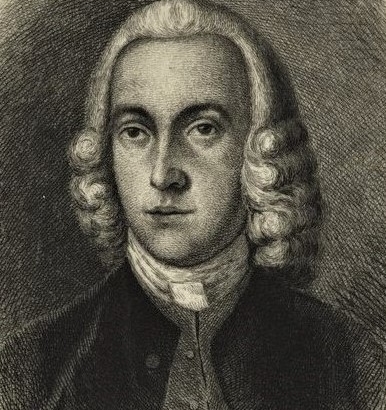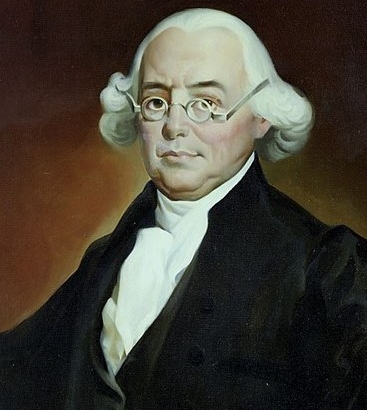Guest Essayist: David B. Kopel
In 1949, after more than 20 years of fighting, the Chinese Communist Party overthrew the Republic of China. The party’s chairman, Mao Zedong, became dictator, and ruled until his death in 1976. Mao’s regime was the most murderous in history. His regime killed over 86 million people—more than Hitler and Stalin combined.
In 1966 Mao initiated “The Great Proletarian Cultural Revolution.” It started as a campaign against the more pragmatic elements of the Chinese Communist Party—such as leaders who a few years before had forced Mao to retreat from an agricultural collectivization program, the Great Leap Forward, that had caused the deadliest famine ever.
Incited by Mao, the Cultural Revolution began with the most privileged students—the children of the top communist party officials—at the top universities. They rioted, rampaged, and looted, first on-campus and then beyond. They started by killing or torturing teachers, and then moved on to the general public. Soon, the rage mobs of ultra-Maoists spread nationwide. Anyone’s home could be invaded and looted, and anyone could be murdered or tortured. The police were forbidden to interfere—or even to fight back when the mobs assaulted the police.
As the Cultural Revolution continued, things got even worse. The Cultural Revolution ended only when Mao died.
The Americans who created the United States Constitution could not know about the tyrants who would arise in the twentieth century. They did know of bad men who had tried to seize absolute power, such as Julius Caesar in the Roman Republic, or King James II of England. Yet the worst of English kings or Roman emperors were mild in comparison to the totalitarian Mao regime.
The American “people did not establish primarily a utility-maximizing constitution, but rather a tyranny-minimizing one.” Rebecca I. Brown, Accountability, Liberty, and the Constitution, 98 Columbia Law Review 531, 570 (1998). This essay describes some of the provisions of the U.S. Constitution that aim to thwart absolutism and totalitarianism. The information about China under Mao is based on David B. Kopel, The Party Commands the Gun: Mao Zedong’s Arms Policies and Mass Killings, Chapter 19.D.3 in Nicholas J. Johnson, David B. Kopel, George A. Mocsary, E. Gregory Wallace & Donald E. Kilmer, Firearms Law and the Second Amendment: Regulation, Rights and Policy (Aspen Publishers, 3d ed. 2022), pp. 1863-1966. Additional citations are available therein.
The Preamble to the Constitution states:
“We the People of the United States, in Order to form a more perfect Union, establish Justice, insure domestic Tranquility, provide for the common defence, promote the general Welfare, and secure the Blessings of Liberty to ourselves and our Posterity, do ordain and establish this Constitution for the United States of America.”
The principles and the results of the Mao regime were the opposite. For example, starting in 1972-73, the people were ordered to condemn the “reactionary” ideas of Confucius, such as “the people are the foundation of the state,” and “depositing riches in the people.” As described below, the Mao regime cultivated injustice, domestic violence, the welfare of the ruling class at the expense of the people, and the eradication of liberty. The regime did “provide for the common defense” in the sense that China was not invaded in 1949-76, other than in some border clashes with the Soviet Union.
The U.S. Constitution creates three distinct and independent branches of government:
“All legislative powers herein granted shall be vested in a Congress of the United States.” Art. I, §1.
“The executive power shall be vested in a President of the United States of America.” Art. II, §1.
“The judicial power of the United States shall be vested in one Supreme Court, and in such inferior courts as the Congress may from time to time ordain and establish.” Art. III, §1
Under the U.S. Constitution, the three branches of government check and balance each other, as power is set against power. In a communist regime, there are no checks on the party’s will. All political power belongs to the party. Under Mao, “at the top, thirty to forty men made all the major decisions. Their power was personal, fluid, and dependent on their relations with Mao.” Andrew J. Nathan, Foreword, in Li Zhusui, The Private Life of Chairman Mao xi (Tai Hung-Chao trans. 1994).
“The House of Representatives shall be composed of members chosen every second year by the people of the several states.” Senators are to be elected every “six years” and the President every “four years.” Art. I §§2-3; Art. II §1.
There have been no elections since the Chinese Communist Party (CCP) seized power in 1949. Although the party calls the nation it rules the “People’s Republic of China,” the name is a lie. In a “republic” where “the people” rule, the people elect government officials. In the People’s Republic of China, the party rules because the military keeps the party in power. It is reasonable to infer that the CCP knows that if free elections were held, the CCP would lose.
Particular types of “power” are granted to each of the three branches of government. Arts. I §8, II §§2-3, III §2.
The three branches of United States government are granted certain powers by the people. The branches of government may exercise the particular powers expressly granted by the Constitution, as well as some incidental powers that are implied by the express grants. No branch of government, and not even the U.S. government as a whole, has all possible powers.
A communist regime claims unlimited power over everything. Mao acknowledged no legal limit on himself. The practical limit was the difficulty of one man imposing his absolute will on hundreds of millions. The Cultural Revolution was Mao’s method for eliminating everything and everyone that impeded his power.
Congress creates law by passing a “bill,” in compliance with certain procedures. Art. I §7.
The Mao regime was not based on law. As Mao told the very sympathetic American journalist Edgar Snow, “We don’t really know what is meant by law, because we have never paid any attention to it!” Li Cheng-Chung, The Question of Human Rights on China Mainland 12 (1979) (statement to Edgar Snow 1961).
During the 1950s, there were some efforts to create normal legal codes, but these were abandoned once the Great Leap Forward into full communism began in 1958. In contrast to the Hitler regime, which issued many statutes and regulations, the Mao system relied mainly on edicts from the communist leadership, the Party Center. There were many exhortative propaganda campaigns based on slogans.
The party-controlled national newspaper, the People’s Daily, was read to peasants and workers in frequent, mandatory political instruction meetings, which often consumed the rest of the day after work. In effect, the latest article in the People’s Daily was the official source for people to learn how to behave without getting in trouble with the authorities. As different factions within the CCP gained ascendency, the edicts changed frequently. So doing what had been mandatory on Monday could be punished on Friday.
“The privilege of the writ of habeas corpus shall not be suspended, unless when in cases of rebellion or invasion the public safety may require it.” Art. I §9.
When a court issues a writ of habeas corpus, whoever is holding an individual prisoner must appear in court and prove to the court that the detention of the prisoner is lawful. In communist regimes, there is no recourse for individuals who are arbitrarily imprisoned or sent to slave labor camps.
Neither the federal government nor the states may enact any “ex post facto law.” Art. I §§9-10.
In other words, a criminal law cannot retrospectively punish an act that was lawful at the time it was committed. Just the opposite under Mao and all communist regimes. For example, in the 1956 Hundred Flowers period, people were encouraged to frankly express their views about perceived shortcomings of the CCP. Later, persons who had done so were imprisoned or sent to slave labor camps.
Likewise, during the first several months of the Cultural Revolution, young people from all over China were given free train tickets to see Chairman Mao speak at mass rallies at Tiananmen Square in Beijing. This was an exception to the normal rule that a person could not travel away from his or her village.
A few years later, when factional politics within the CCP had changed, 3.5 million people who had attended one of the 1966 rallies were given other free tickets: one-way transportation to forced labor in the countryside.
Throughout the Mao era, people were often punished for acts that had been lawful at the time, such as expressing non-communist political opinions in the 1930s.
“The President shall, at stated times, receive for his services a compensation, which shall neither be increased nor diminished during the period for which he shall have been elected; and he shall not receive within that period any other emolument from the United States, or any of them.” Art. II §1.
The President’s salary and expense accounts are set by Congress. Mao, in contrast, treated himself to whatever he wanted. In Beijing he lived in the former palace of the emperors, with his own private swimming pool and beach. He had fifty more fortified palaces around the country.
The special Giant Mountain (Jushan) farm supplied fine foods daily to the portly Mao and the others at apex of the CCP food chain. When Mao was away from Beijing, which was most of the time, daily airplanes delivered food from Jushan. The élite CCP leadership in the provinces had similar arrangements for special food, while the masses starved.
Mao enjoyed the company of many beautiful young concubines, procured for him by government employees.
During the Cultural Revolution, everyone had to buy a book of his sayings, Quotations from Chairman Mao Zedong, popularly known as “The Little Red Book.” Mao decided that he was entitled to royalties from all the forced book sales, and he became the first millionaire in Communist China.
As explained by a former vice-president of communist Yugoslavia, all communist governments eventually replace the old wealthy class with a new class of reactionary despots. Property that was nationalized in the name of “the people” becomes the property of the most privileged at the top of the inner party, the “all-powerful exploiters and masters.” Milovan Dijilas, New Class: An Analysis of the Communist System 47 (1957). The same point is made in George Orwell’s book Animal Farm (1945).
“The President, Vice President, and all civil officers of the United States shall be removed from office on impeachment for, and conviction of, treason, bribery, or other high crimes and misdemeanors.” Art. II §4.
The constitutional system of elections makes a president removable by the people every four years. In addition, a president may be removed during his term if he is impeached by the House and then convicted by the Senate. In 1974, President Richard Nixon resigned when facing certain impeachment and conviction because of his crimes, including the coverup of an attempted burglary, directed by Nixon’s staff, of the Democratic National Committee office at the Watergate office complex.
But there was no way to remove Mao, even when, as in the Great Leap Forward or the Cultural Revolution, the majority of the people, and even the majority of the CCP elite, thought that he was leading the nation into ruin. Like a bad Roman Emperor, Mao could only be removed by force.
In 1971, Mao began plotting to get rid of defense minister Lin Biao. Lin’s son began organizing a coup against Mao. The plan was to bomb Mao’s train in September 1971, when he would be returning from a trip to southern China to shore up support from the army generals there for Mao’s plan to remove Lin.
But Mao, knowing he was widely hated, often changed his travel plans at the last minute, as a security precaution. This time, the last-minute change saved his life. Lin Biao and his family tried to flee to Mongolia, dying in a plane crash on September 13, 1971.
“The judicial power of the United States shall be vested in one Supreme Court, and in such inferior courts as the Congress may from time to time ordain and establish. The judges, both of the Supreme and inferior courts, shall hold their offices during good behavior, and shall, at stated times, receive for their services a compensation, which shall not be diminished during their continuance in office.” Art. III §1.
“The trial of all crimes, except in cases of impeachment, shall be by jury.” Art. III §3.
“In all criminal prosecutions, the accused shall enjoy the right to a speedy and public trial by an impartial jury of the state and district wherein the crime shall have been committed, which district shall have been previously ascertained by law, and to be informed of the nature and cause of the accusation; to be confronted with the witnesses against him; to have compulsory process for obtaining witnesses in his favor; and to have the assistance of counsel for his defense.” Amendment VI.
The U.S. Constitution guarantees the right to jury trial, with fair trial procedures, such as the right to counsel, public proceedings, and the right to cross-examine witnesses. Federal judges hold their positions until they choose to retire, and they cannot be removed for political reasons.
Under Mao, “judicial reform” purged judicial officers and ensured that a puppet judiciary would never err on the side of lenience against dissidents. Courts ceased to exist as independent finders of fact. They became administrative processing units for predetermined sentences. Entirely under the thumb of the CCP, judges merely pronounced the severe sentences that CCP officials had already decided. In cases where the law was not clear, judges were required to follow the Central Party line. According to the CCP official newspaper, People’s Daily, the accused were “presumed to be guilty. . . . Giving the accused the benefit of the doubt is a bourgeois weakness.”
“Congress shall make no law respecting an establishment of religion or prohibiting the free exercise thereof, or abridging the freedom of speech or of the press, or the right of the people peaceably to assemble and to petition the government for a redress of grievances.” Amendment I.
No government-established religion, and free exercise of religion
As soon as the communists seized power, they began suppressing some religious organizations and bringing the rest under state control. Religious organizations could exist only as entities subordinate to and directed by the CCP. Soon, the government began to attempt to exterminate religion entirely. While atheism was the official communist belief, the party recognized that religion made people harder to control, as the faithful recognized a higher power than the CCP.
Today’s China is little different. Tibetan Buddhists, Uighur Muslims, and Falun Gong face the worst persecution. Christian denominations are allowed to exist only as state-controlled entities.
Mao despised religion. When Tibet’s Dalai Lama visited Mao in Beijing in 1954, Mao told him, “I understand you well. But of course, religion is poison. It has two great defects: It undermines the race, and secondly it retards the progress of the country. Tibet and Mongolia have both been poisoned by it.” Dalai Lama, My Land and My People 117-18 (2006).
Mao always wanted to be the center of attention. He didn’t like the Chinese national anthem, March of the Volunteers, which had been adopted by the CCP in 1949. It had originally been a song for people of all political persuasions who fought the Japanese invasion of China of 1933-45. During the Cultural Revolution, Mao put the national anthem author in prison, where he died. Although Mao did not formally change the national anthem, for almost every occasion that the national anthem would be played, Mao made the state media (the only media) instead play a song about him, The East Is Red.
“The East Is Red (Dongfang hong):
From China comes Mao Zedong.
He strives for the people’s happiness,
Hurrah, he is the people’s great saviour!
Chairman Mao loves the people,
He is our guide to building a new China.
Hurrah, lead us forward!”
For schoolchildren, a soon-to-be pervasive new song was composed in 1966: “Father is dear, mother is dear, But not as dear as Chairman Mao.”
Under German regime of the National Socialist German Workers Party (“Nazi” for short), people were required to say “Heil Hitler” rather than “Good morning” or “Hello.” The same became true with “Long Live Chairman Mao”—literally, “Chairman Mao ten thousand years” (Mao zhuxi wansui). One man was executed for saying that Chairman Mao would not actually live ten thousand years.
With Mao’s blessing, the military (the “People’s Liberation Army,” PLA) began establishing a new religion for China. Starting in the latter part of 1967, most nonwork time was taken up by mandatory nightly assemblies where people had to discuss their personal behavior in light of Mao Zedong Thought. Then came the 1968-69 campaign of “Three Loyalties” and “Four Boundless Loves” that everyone was supposed to feel for Chairman Mao.
Statues and shrines of Mao were erected everywhere. Busts or pictures of Mao were mandatory home religious items.
Although there was good money to be made, painters often declined the opportunity to paint a Mao icon, since the artist would be scrutinized and punished for the slightest inadvertent sign of insufficient veneration.
Upon arising in the morning, everyone had to face their home Mao shrine and “ask for instructions.” The day ended with “reporting back in the evening.” Mao replaced the “kitchen god” of Chinese folk culture. In other aspects Mao was portrayed as the sun god.
Life was structured around Mao and his words. Before every meal, people had to say grace: “Long live Chairman Mao and the Chinese Communist Party.”
Maoist life encompassed the body as well as the mind. Instead of normal sports, the new exercise routine was “quotation gymnastics”—a set of group exercises in which participants shouted Mao quotes related to the motions. For example, in the third set of exercises, the leader would yell “political power grows out of the barrel of a gun.” The exercisers would make nine thrusting and stabbing motions with imaginary bayonets.
Even more common were “loyalty dances,” in which individuals or groups stretched their arms to show their “boundless hot love” for Mao, sometimes worshipping him as the sun. The PLA enforcers labeled any nonparticipant in the Mao rites as an “active counterrevolutionary.”
People began reporting miracles such as healing of the sick and attributing them to Mao. Communist temples were erected, based on the historic model of ancestral temples. When buying a Mao item in a store, one could not use the common word for buying, mai; instead one would use the polite verb actress Jiang Qing, previously reserved for the purchase of religious items.
Freedom of speech and freedom of the press
When the communists were fighting to overthrow the Republic, they promised freedom of speech for everyone. As soon the Communists seized power, all nongovernment newspapers were closed.
All radios were confiscated, so no one could hear news from the outside world. The confiscation of radio transmitters ensured that people could not communicate with each other at a distance.
All mail was surveilled, and the contents were put in the secret files that the government kept on everyone.
Once people saw what communist rule was like, many people burned their book collections, because possession of a book—even an apolitical book—that was not based on communist ideology might result in the owner being labeled a “counterrevolutionary” and sent to a slave labor camp.
During the Cultural Revolution, the rage mobs pillaged libraries and burned books in huge outdoor bonfires, reminiscent of similar book burnings in Nazi Germany. The Nazi book burners mainly targeted books by Jewish authors, but Mao’s mobs were more ambitious. Any book that was not communist—such as books of ancient poetry—was put to the torch. Many rare historic manuscripts were destroyed.
Mao’s fourth wife, the former actress Jiang Qing, took a special interest in the performing arts. In China, opera had always been entertainment for the masses (as it was in the United States in the nineteenth century) and not solely for a highly educated audience (as it is in the U.S. today). Madame Mao banned all classical works of performing art. The only works that could be performed were post-1949 “model” pieces of crude communist propaganda. That amounted to five operas, two ballets, and one symphony. In the privacy of her palaces, Madame Mao enjoyed a much broader selection of entertainment, including private screenings of Western movies.
During the Cultural Revolution, simply being educated, or an intellectual, or able to speak a foreign language could be cause enough to be killed, tortured, or put into forced labor.
From about March 1968 to April 1969, even the most mundane conversation had to be centered on Mao. If a peasant walked into a store, the clerk was supposed to say “keep a firm hold on grain and cotton production,” and the peasant would reply “strive for even greater bumper crops.” If the customer was a student, the clerk would say “read Chairman Mao’s books,” and the student would answer “heed Chairman Mao’s words.” As one historian observes, “The Cultural Revolution is perhaps the time in the twentieth century when language was most separated from meaning. . . . If you do not mean what you say, because what you say has no meaning beyond the immediate present, then it is impossible to imbue language with any system of values. . . . This led to the overall moral nullity of the Cultural Revolution during its most manic phase.” Rana Mitter, A Bitter Revolution: China’s Struggle with the Modern World 209 (2004).
Or as George Orwell wrote about a fictional totalitarian government very similar to communism, “The intention was to make speech, and especially speech on any subject not ideologically neutral, as nearly as possible independent of consciousness.” George Orwell, Appendix: The Principles of Newspeak, in 1984 (1990) (1949).
Right to petition the government for redress of grievances
Of course there was no such right in Mao’s China, especially during the Cultural Revolution. Sending the government a critical petition would lead to every signer being imprisoned, tortured, sent to slave labor camp, or executed.
At the beginning of the Cultural Revolution, Wang Rongfen, who was studying German at the Foreign Languages Institute, observed the similarities between Mao’s first Cultural Revolution rally for a crowd at Tiananmen Square and Hitler Nuremberg rallies. She sent Chairman Mao a letter: “the Cultural Revolution is not a mass movement. It is one man with a gun manipulating the people.” He sent her to prison for life. In prison, she was manacled full-time, and the manacles bore points to dig into her flesh. She had to roll on the floor to eat. She was released in 1979, three years after Mao’s death, with her spirit unbroken.
Right of Assembly
The textual right of assembly is related to the implied right of association. As the U.S. Supreme Court has recognized, the right of association is implied by the other First Amendment rights, and is necessary to their exercise.
Under the CCP, no associations could exist except those under government control. No assemblies on political matters were allowed, except those demanded by the government.
But when Premier Zhou Enlai died in January 1976, huge, spontaneous, and unauthorized crowds assembled to mourn him. The crowds considered him relatively less totalitarian and oppressive than Mao. Unlike the Tiananmen rallies of the early Cultural Revolution, which originated from the top down, the crowds that gathered to mourn Zhou expressed people power. “The country had not witnessed such an outpouring of popular sentiment since before the communists came to power in 1949.” Li Zhusui, The Private Life of Chairman Mao 611 (Tai Hung-Chao trans. 1994).
While there were demonstrations at over 200 locations throughout the country, the flashpoint was in Beijing’s Tiananmen Square, which saw the largest spontaneous demonstration ever in China. On April 4, Tomb-Sweeping Day (Qing Ming), a traditional day for honoring one’s ancestors, an immense crowd gathered at the Monument to the People’s Martyrs in Tiananmen Square. Erected in 1959, the monument honored Chinese revolutionary martyrs from 1840 onward.
That night, the Tiananmen assembly was attacked by the Capital Militia Command Post (a/k/a the “Cudgel Corps”). According to one report, it later took hundreds of workers to scrub off all the blood.
“A well-regulated militia being necessary to the security of a free state, the right of the people to keep and bear arms shall not be infringed.” Amendment II.
The Second Amendment ensures that the government will never have a monopoly of force. As Americans knew from recent history in Europe and from ancient history, people who were first disarmed were often tyrannized later.
The Chinese Communist Party was aware of similar lessons of history. In a 1938 speech, Mao explained, “Our principle is that the Party commands the gun, and the gun must never be allowed to command the Party. . . . According to the Marxist theory of the state, the army is the chief component of state power. Whoever wants to seize and retain state power must have a strong army.” Problems of War and Strategy (Nov. 6, 1938).
In 1949, one of the new regime’s “first acts” was “to confiscate weapons.” Jung Chang & Jon Halliday, Mao: The Unknown Story 424 (2005). Homes were inspected to “search for forbidden items, from weapons to radios.” Frank Dikötter, The Tragedy of Liberation: A History of the Chinese Revolution 1945-1957, at 45-46 (2013).
By ensuring that all the people could be armed, the Second Amendment aimed to ensure that the militia would be drawn from all people. If the government were allowed to disarm people, then instead of a general militia of the people, there would be a “select militia” of the government’s favorites and toadies. At the Virginia Convention for ratifying the U.S. Constitution, George Mason had warned that a select militia would “have no fellow-feeling for the people.” (June 14, 1788).
As the U.S. Supreme Court noted, in England, the despotic Stuart kings in the seventeenth century had used “select militias loyal to them to suppress political dissidents, in part by disarming their opponents.” District of Columbia v. Heller, 554 U.S. 570, 592 (2008). Further, said the Court, the Second Amendment was enacted in part to assuage fears that the U.S. government “would disarm the people in order to impose rule through a standing army or select militia.” Id. at 588.
Under Mao, a select militia was the instrument for forcing most of the population into de facto slavery. In the 1958-62 Great Leap Forward, the select militia became the instrument that caused the deaths of over forty million people from famine.
In a nation of over 600 million people, the select militia comprised fewer than 2 percent of the population. Unlike in the American system, militia arms were not personally owned but were usually centrally stored and guarded.
According to a political refugee interviewed in Hong Kong in the 1950s, in a farm commune of 15,000 families, there would be about 1,500 militiamen, chosen from the politically correct, who would have rifles. Of these there was “a further selection of 150 super-reliable men whose rifles are always loaded.” Suzanne Labin, The Anthill: The Human Condition in Communist China 104 (Edward Fitzgerald trans., Praeger 1960) (1st pub. in France as La Condition Humaine en Chine Communiste (1959)). “Otherwise ammunition is kept at a central armoury guarded day and night by special police armed with machine-guns. As an extra precaution the personnel of this guard is changed every two months.” Id. A hundred and fifty always-armed males could control 15,000 families.
“They would turn out to be crucial in enforcing discipline, not only during the frenzy to establish communes, but throughout the years of famine that lay ahead.” Frank Dikötter, Mao’s Great Famine: The History of China’s Most Devastating Catastrophe, 1958-1962, at 182 (2010). “[L]ocal militia were a critical ingredient in the CCP’s consolidation of power in the countryside.” Elizabeth J. Perry, Patrolling the Revolution: Worker Militias, Citizenship, and the Modern Chinese State 182 (2007).
“The militia movement and a small corps of trained fighters brought military organization to every commune. All over China farmers were roused from sleep at dawn at the sound of a bugle and filed into the canteen for a quick bowl of watery rice gruel. Whistles were blown to gather the workforce, which moved in military step to the fields. . . . Party activists, local cadres and the militia enforced discipline, sometimes punishing underachievers with beatings.”
Dikötter, Famine, at 50. “Militiamen spearheaded the countless mobilization campaigns that were the hallmark of Mao’s rule. They enforced universal participation by all members of the factory or village, dragged out or designated targets of struggle [persons targeted for persecution], and monitored mass meetings.” Perry, at 191.
A case study of the remote village of Da Fo, located on the North China Plain, details the operation of the select militia. There, guns had been confiscated in 1951 (later than the general confiscation in 1949, perhaps because of the village’s isolation). Over the course of the war against the Japanese invasion and then the final phase of the civil war (1945-49), the high-quality leaders of the Da Fo communist militia had been moved elsewhere, to positions of greater responsibility. The militiamen left behind were the dregs of society. “Villagers remember them as poorly endowed, uneducated, quick-tempered, perfidious hustlers and ruffians who more often than not operated in an arbitrary and brutal political manner in the name of the Communist Party.” Ralph A. Thaxton, Jr., Catastrophe and Contention in Rural China: Mao’s Great Leap Forward: Famine and the Origins of Righteous Resistance in Da Fo Village 329 (2008).
There were no rules against them exploiting or coercing peasants. To the extent that the national government provided subsidies, the militia took them. The Da Fo militia had 30 guns and kept the crop fields under a four-man armed guard day and night, to prevent peasants from obtaining food.
“The militia was a repressive institution, and Mao needed it to press the countless rural dwellers who were resisting disentitlement by the agents of the people’s commune.” Id. “These men were practically the perfect candidates to tear apart civil society and destroy human purpose. . . . [T]hey had a lot in common with the Khmer Rouge in Cambodia, with Ceauşescu’s militias in Transylvania, and with the Janjaweed in the Darfur region of Sudan. In rural China of the late 1950s, as in these other killing field environments, such men were backed by state power.” Id. at 330.
The militia and the communist party cadres carried large sticks they used to beat the peasants. The frontline enforcers were under orders from their superiors to administer frequent beatings, and those who failed to do so were punished. “A vicious circle of repression was created, as ever more relentless beatings were required to get the starving to perform whatever tasks were assigned to them.” Dikötter, Famine, at 299.
Without the select militia, “surely the famine’s death rate would not have been so high.” Thaxton, at 331. Because of the select militia, peasants suffered “socialist colonization, subhuman forms of labor, and starvation.” Id. at 334.
Tibet
The Chinese Communist army invaded eastern Tibet in 1949 and central Tibet in 1951. At first, they ruled relatively mildly, while they worked hard at building a transportation infrastructure for permanent military occupation. But in 1956, the Chinese announced gun registration, which the Tibetans accurately foresaw as a step towards gun confiscation. In 1957, the CCP demanded that Tibetans surrender all their firearms.
Tibet was a universally armed nation. Every man was expected to have a firearm and be proficient with it. The Tibetan Buddhist monasteries had large arsenals. Even the poorest beggar would at least have a large knife.
As the Dalai Lama later recalled, when he heard about the gun confiscation order, “I knew without being told that a Khamba [Eastern Tibetan] would never surrender his rifle — he would use it first.” Roger Hicks & Ngakpa Chogyam, Great Ocean 102 (1984) (authorized biography).
The historically fractious Tibetan tribes united in a national resistance movement, the Chushi Gangdruk. For a while, they drove the Chinese out of most of Tibet, and liberated hundreds of thousands of square miles.
Yet although the Tibetan volunteers were, man-for-man, vastly superior fighters to the Chinese conscripts, the Chinese eventually wore down the Tibetan resistance through sheer force of numbers, just as centuries before barbarians in Europe had overwhelmed the Roman Empire’s legions.
The Tibetan resistance movement did make it possible for 80,000 Tibetans, including the Dalai Lama, to escape to India and Nepal, where they have kept the Tibetan Buddhist religion alive, free of CCP domination, and have continued to inform the world about the CCP’s colonialism and genocide in Tibet.
“No Soldier shall, in time of peace be quartered in any house, without the consent of the Owner, nor in time of war, but in a manner to be prescribed by law.” Amendment III.
Unlike some of the bad monarchs in England and France, Mao did not force families to let soldiers live in their homes. Rather, Mao forced people to live in soldiers’ homes, as prisoners under constant armed guard.
Starting in the Great Leap Forward, the government seized all farmland and forced people into communal labor. In many communes, families had to leave their homes, live in sex-segregated barracks, and eat in mess halls. Husbands and wives were allowed one short conjugal visit per week. This was consistent with Marxism, which boldly demanded “Abolition of the family!” Karl Marx, Communist Manifesto 24 (Samuel Moore & Friedrich Engels trans. 1888) (1848).
“The right of the people to be secure in their persons, houses, papers, and effects against unreasonable searches and seizures shall not be violated, and no warrants shall issue but upon probable cause, supported by oath or affirmation, and particularly describing the place to be searched and the persons or things to be seized.” Amendment IV.
Starting in 1955-56, the CCP ordered that people allow home inspections at any time. This was part of a household registration system that also required people to reside in the registered place permanently, unless they were given government permission to move. People could travel only when issued a permit, had to register when staying somewhere else overnight, had to register their own house guests, and had to report on the content of conversations with guests.
All postal mail could be secretly opened by the government, its contents recorded in the government’s secret files on every person, to accumulate material for potential later use against the writer.
During the Cultural Revolution, Mao’s mobs, the “Red Guards,” searched house-to-house for concealed arms, books, religious items, gold coins, and evidence of disloyalty. If something was found, the victims were tortured. “Every night there were terrifying sounds of loud knocks on the door, objects breaking, students shouting and children crying. But most ordinary people had no idea when the Red Guards would appear, and what harmless possessions might be seen as suspicious. They lived in fear.” Frank Dikötter, The Cultural Revolution: A People’s History, 1962-1976, at 86-90 (2016). Many people pre-emptively destroyed their books and artwork, lest the Red Guards discover them. Ordinary thieves posed as Red Guards to get in on the looting.
“[N]or shall any person be subject for the same offense to be twice put in jeopardy of life or limb; nor shall be compelled in any criminal case to be a witness against himself, nor be deprived of life, liberty, or property without due process of law; nor shall private property be taken for public use without just compensation.” Amendment V.
The prohibition of “double jeopardy” means that if a person is tried for alleged crime and acquitted, the government cannot prosecute the same person a second time for the same offense. This was irrelevant under Mao, since persons who were accused were always convicted the first time.
While the Fifth Amendment forbids compelled self-incrimination, self-incrimination was mandatory under Mao. If an arrested person did not confess to whatever crimes she was accused of, she would be tortured until she did.
The Takings Clause means that government must pay compensation when it takes a person’s property. But under Mao, property could be taken at any time. Some people had no property at all. For example, starting with the Great Leap Forward in 1958, the peasants forced to live in barracks on the collective farms were not allowed to own even a spoon.
The communists had won the revolution in part because they had promised to give land to the peasants. The communists did so in the years immediately after the revolution. Then starting in 1958, the land was taken by the government. The peasants were turned into serfs—forbidden to leave the land and forced to labor under armed guard to produce crops, most of which the government would take without compensation.
In the Cultural Revolution, Mao’s rage mobs roamed the streets, attacking women for bourgeoise behavior such as wearing dresses or having long hair. Poor street peddlers, barbers, tailors, and anyone else participating in the non-state economy were attacked and destroyed. Many of them were ruined and became destitute.
“Excessive bail shall not be required, nor excessive fines imposed, nor cruel and unusual punishments inflicted.” Amendment VIII.
The system of bail allows a person who has been arrested for crime to be released from jail pending trial, if the person posts a bond to ensure that he will appear in court for trial. Under communism, once a person is arrested, the person may simply “disappear,” never to be seen in public again.
While the Eighth Amendment prohibits torture, torture was a common tool of the Mao regime. Soon after the communists seized power in 1949, their “land reform” program encouraged peasants to torture and then kill small farmers and landlords. If Mao decided that a high-ranking official was now an enemy, he would have the official tortured in front of an assembly of the communist elite.
In the Cultural Revolution, Mao’s rage mobs roamed the streets with leather belts with brass buckles, which they used to beat their targets senseless, often inflicting severe injury. Sometimes the victims were forced to lick their blood up from the street. Any pedestrian could be accosted by Red Guards, ordered to recite quotations from Chairman Mao, and then tortured on the spot for not having memorized enough of them.
The Cultural Revolution also brought a savage campaign of genocide and torture of the minority Mongol population, living in north-central China. Ethnic minorities in other border regions received similar treatment.
A new round of purges began in 1969 and ran through 1971, based on a supposed “May Sixteenth” conspiracy from 1966. This was the date that a circular had announced the creation of the Central Cultural Revolution Group, which would publicly unleash the Cultural Revolution several days later. Supposedly, May 16 was also the debut of a secret plot against Premier Zhou Enlai. Although Zhou was himself a member of the Central Cultural Revolution Group, there were others in the group, including Mao’s wife, who hated him and plotted against him. Whatever the intrigue at the top, the persecution of “May Sixteenth elements” did not target Madame Mao but instead large numbers of people who had no plausible connection to any conspiracy; they were tortured into confessing to having joined a conspiracy that they had never heard of before they were arrested.
Meanwhile, in rural areas, where the Cultural Revolution was less intense, the local militias, aware of all the killing and torture going on in the towns and cities, decided to demonstrate their loyalty by going on their own spontaneous murder and torture sprees.
The victims were not participants in Cultural Revolution politics. Rather, the targets were the “Four Types”—who since 1949 had always been easy targets for attack. These included former landlords, anyone who had owned a small business before the revolution, anyone who was claimed to be a noncommunist, and any “bad element” who had supposedly deviated from the CCP orthodoxy of the moment.
Victims were typically denounced in public show trials that everyone in the village had to attend. Some victims were executed in plain sight to spread terror. Execution methods involved firearms, beating and torturing people to death (always common under Mao), or imaginative procedures, such as marching victims off a cliff.
“The enumeration in the Constitution of certain rights shall not be construed to deny or disparage others retained by the people.” Amendment IX.
“The powers not delegated to the United States by the Constitution, nor prohibited by it to the states, are reserved to the states respectively, or to the people.” Amendment X.
The U.S. constitutional system is based on the sovereignty of the people. The people delegate some powers to the federal government, via the Constitution. The Ninth Amendment makes it clear that the Bill of Rights is not an exclusive list of the people’s retained rights. The Tenth Amendment affirms that the people and their state governments retain all powers that were not delegated to the federal government.
Under communism, the people have no “retained” rights or “reserved” powers. The omnipotent sovereign is the communist party. Under Maoism, the only purpose of human existence was to serve Mao.
 Dave Kopel is Research Director of the Independence Institute; an Adjunct Scholar with the Cato Institute, in Washington; and adjunct Professor of Constitutional Law at the University of Denver’s Sturm College of Law. His website is www.davekopel.org. He is a regular panelist on Colorado Public Television’s “Colorado Inside Out” and a columnist for the Reason magazine on the Volokh Conspiracy law blog.
Dave Kopel is Research Director of the Independence Institute; an Adjunct Scholar with the Cato Institute, in Washington; and adjunct Professor of Constitutional Law at the University of Denver’s Sturm College of Law. His website is www.davekopel.org. He is a regular panelist on Colorado Public Television’s “Colorado Inside Out” and a columnist for the Reason magazine on the Volokh Conspiracy law blog.
Click here for American Exceptionalism Revealed 90-Day Study Schedule
Click here to receive our Daily 90-Day Study Essay emailed directly to your inbox

 Christopher C. Burkett is Associate Professor of History and Political Science, and Director of the Ashbrook Scholar Program at Ashland University.
Christopher C. Burkett is Associate Professor of History and Political Science, and Director of the Ashbrook Scholar Program at Ashland University.
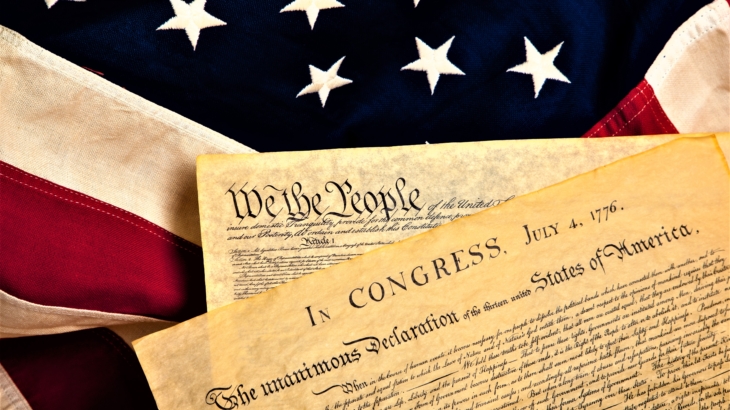
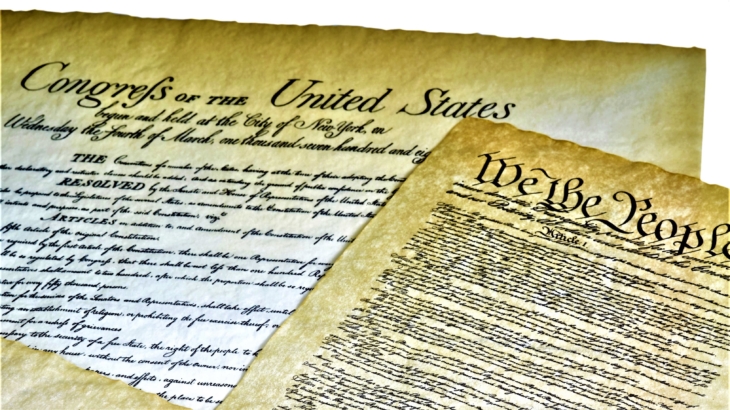
 Gary Porter is Executive Director of the
Gary Porter is Executive Director of the 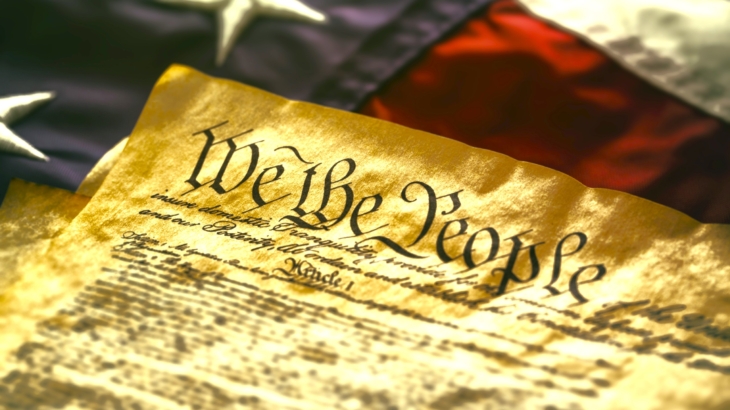
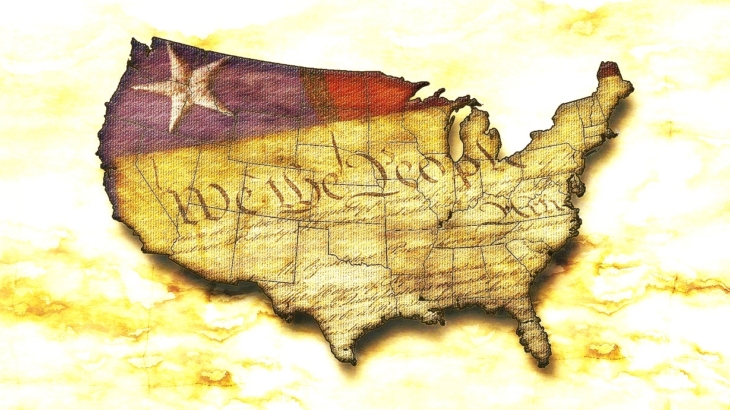

 Kevin Portteus is Professor of Politics, Director of American Studies, and the Lawrence Fertig Chair in Politics at Hillsdale College.
Kevin Portteus is Professor of Politics, Director of American Studies, and the Lawrence Fertig Chair in Politics at Hillsdale College.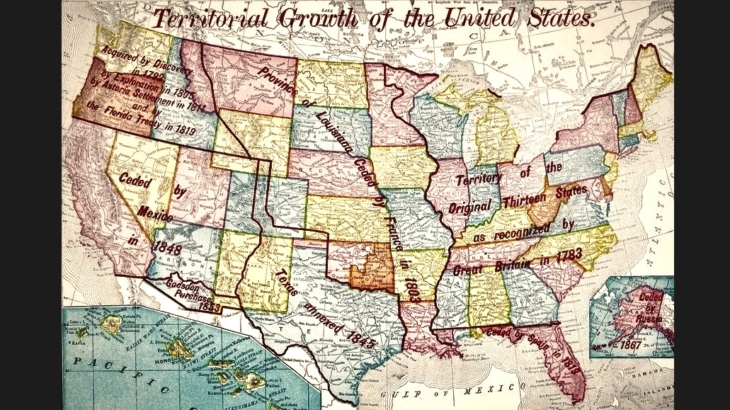
 Amanda Hughes serves as 90-Day Study Director for Constituting America. She is author of a book on faith and voting, Who Wants to Be Free? (WestBow Press). She is a story contributor for the anthologies Loving Moments and Moments with Billy Graham (Grace Publishing). She served as editor of her father’s book, Adventures, Wit & Wisdom: The Life & Times of Charlie Hughes (WestBow Press). Amanda received her B.A. from Texas State University and her M.A. from Southwestern Baptist Theological Seminary.
Amanda Hughes serves as 90-Day Study Director for Constituting America. She is author of a book on faith and voting, Who Wants to Be Free? (WestBow Press). She is a story contributor for the anthologies Loving Moments and Moments with Billy Graham (Grace Publishing). She served as editor of her father’s book, Adventures, Wit & Wisdom: The Life & Times of Charlie Hughes (WestBow Press). Amanda received her B.A. from Texas State University and her M.A. from Southwestern Baptist Theological Seminary.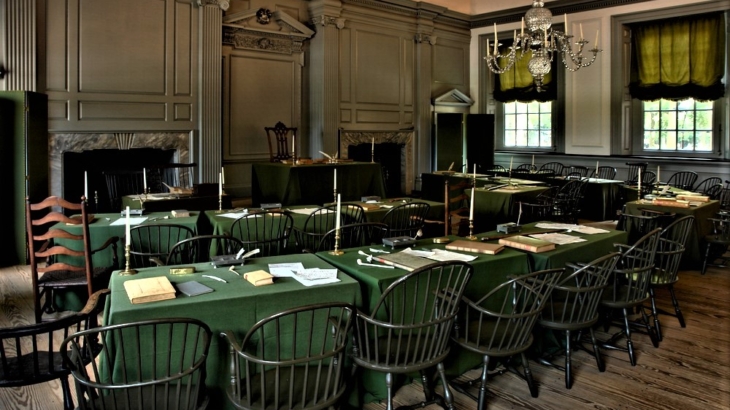
 Tony Williams is a Senior Fellow at the Bill of Rights Institute and is the author of six books including Washington and Hamilton: The Alliance that Forged America, with Stephen Knott. Williams is currently writing a book on the Declaration of Independence.
Tony Williams is a Senior Fellow at the Bill of Rights Institute and is the author of six books including Washington and Hamilton: The Alliance that Forged America, with Stephen Knott. Williams is currently writing a book on the Declaration of Independence.
 George Landrith is the President of Frontiers of Freedom.
George Landrith is the President of Frontiers of Freedom.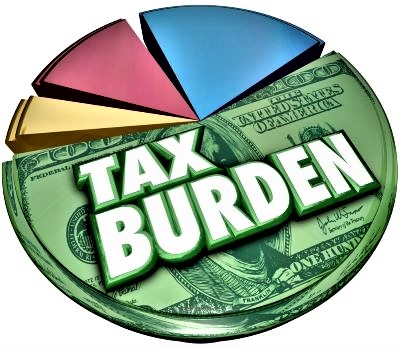
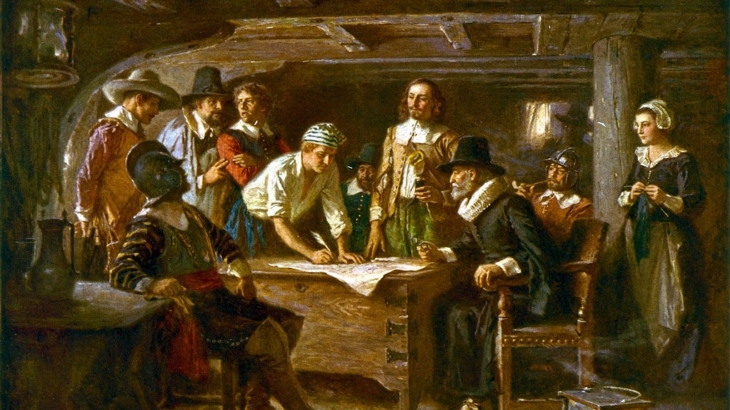 https://en.wikipedia.org/wiki/Mayflower_Compact
https://en.wikipedia.org/wiki/Mayflower_Compact Joerg W. Knipprath is an expert on constitutional law, and member of the Southwestern Law School faculty. Professor Knipprath has been interviewed by print and broadcast media on a number of related topics ranging from recent U.S. Supreme Court decisions to presidential succession. He has written opinion pieces and articles on business and securities law as well as constitutional issues, and has focused his more recent research on the effect of judicial review on the evolution of constitutional law. He has also spoken on business law and contemporary constitutional issues before professional and community forums, and serves as a Constituting America Fellow.
Joerg W. Knipprath is an expert on constitutional law, and member of the Southwestern Law School faculty. Professor Knipprath has been interviewed by print and broadcast media on a number of related topics ranging from recent U.S. Supreme Court decisions to presidential succession. He has written opinion pieces and articles on business and securities law as well as constitutional issues, and has focused his more recent research on the effect of judicial review on the evolution of constitutional law. He has also spoken on business law and contemporary constitutional issues before professional and community forums, and serves as a Constituting America Fellow.
 Andrew Langer is President of the Institute for Liberty, a Fellow with Constituting America, as well as Chairman and Founder of the Institute for Regulatory Analysis and Engagement. IFL is a non-profit advocacy organization focused on advancing free-market and limited government principles into public policy at all levels. IRAE is a non-profit academic and activist organization whose mission is to examine regulations and regulatory proposals, assess their economic and societal impacts, and offer expert commentary in order to create better public policies. Andrew has been involved in free-market and limited-government causes for more than 25 years, has testified before Congress nearly two dozen times, spoken to audiences across the United States, and has taught at the collegiate level.
Andrew Langer is President of the Institute for Liberty, a Fellow with Constituting America, as well as Chairman and Founder of the Institute for Regulatory Analysis and Engagement. IFL is a non-profit advocacy organization focused on advancing free-market and limited government principles into public policy at all levels. IRAE is a non-profit academic and activist organization whose mission is to examine regulations and regulatory proposals, assess their economic and societal impacts, and offer expert commentary in order to create better public policies. Andrew has been involved in free-market and limited-government causes for more than 25 years, has testified before Congress nearly two dozen times, spoken to audiences across the United States, and has taught at the collegiate level.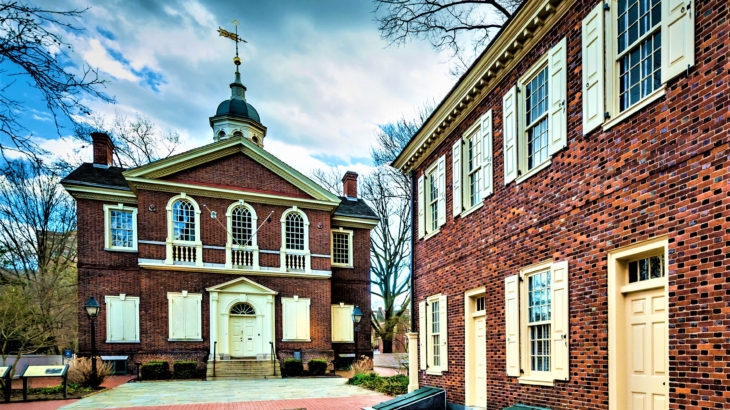
 Scot Faulkner is Vice President of the George Washington Institute of Living Ethics at Shepherd University. He was the Chief Administrative Officer of the U.S. House of Representatives. Earlier, he served on the White House staff. Faulkner provides political commentary for ABC News Australia, Newsmax, and CitizenOversight. He earned a Master’s in Public Administration from American University, and a BA in Government & History from Lawrence University, with studies in comparative government at the London School of Economics and Georgetown University.
Scot Faulkner is Vice President of the George Washington Institute of Living Ethics at Shepherd University. He was the Chief Administrative Officer of the U.S. House of Representatives. Earlier, he served on the White House staff. Faulkner provides political commentary for ABC News Australia, Newsmax, and CitizenOversight. He earned a Master’s in Public Administration from American University, and a BA in Government & History from Lawrence University, with studies in comparative government at the London School of Economics and Georgetown University.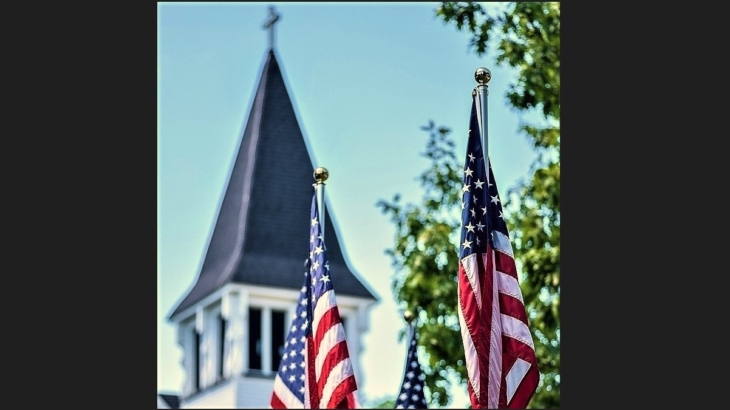
 Patrick M. Garry is professor of law at the University of South Dakota. He is author of Limited Government and the Bill of Rights and The False Promise of Big Government: How Washington Helps the Rich and Hurts the Poor.
Patrick M. Garry is professor of law at the University of South Dakota. He is author of Limited Government and the Bill of Rights and The False Promise of Big Government: How Washington Helps the Rich and Hurts the Poor.


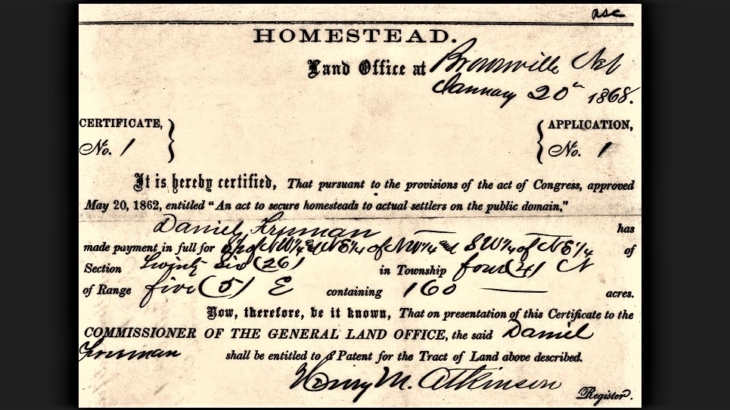
 Stephen Tootle is a Professor of History at the College of the Sequoias in Visalia, California and Honored Visiting Graduate Faculty in History and Government at Ashland University in Ashland, Ohio. His writings have appeared in National Review, Presidential Studies Quarterly, The Claremont Review of Books, The Journal of the Gilded Age and Progressive Era, and other publications. He gives talks on politics and political history for the Ashbrook Center and the Bill of Rights Institute and is the co-host of The Paper Trail Podcast, a weekly public affairs podcast published by the Sun-Gazette.
Stephen Tootle is a Professor of History at the College of the Sequoias in Visalia, California and Honored Visiting Graduate Faculty in History and Government at Ashland University in Ashland, Ohio. His writings have appeared in National Review, Presidential Studies Quarterly, The Claremont Review of Books, The Journal of the Gilded Age and Progressive Era, and other publications. He gives talks on politics and political history for the Ashbrook Center and the Bill of Rights Institute and is the co-host of The Paper Trail Podcast, a weekly public affairs podcast published by the Sun-Gazette.

 James C. Clinger, Ph.D., is an emeritus professor of political science at Murray State University. His teaching and research has focused on state and local government, public administration, regulatory policy, and political economy. His forthcoming co-edited book is entitled Local Government Administration in Small Town America.
James C. Clinger, Ph.D., is an emeritus professor of political science at Murray State University. His teaching and research has focused on state and local government, public administration, regulatory policy, and political economy. His forthcoming co-edited book is entitled Local Government Administration in Small Town America.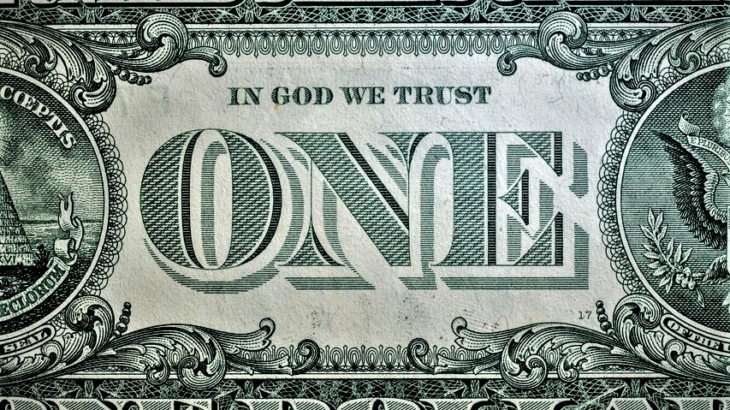
 Robert E. Wright is a Senior Research Fellow at the American Institute for Economic Research. He is the (co)author or (co)editor of over two dozen major books, book series, and edited collections, including AIER’s The Best of Thomas Paine (2021) and Financial Exclusion (2019). He has also (co)authored numerous articles for important journals, including the American Economic Review, Business History Review, Independent Review, Journal of Private Enterprise, Review of Finance, and Southern Economic Review. Robert has taught business, economics, and policy courses at Augustana University, NYU’s Stern School of Business, Temple University, the University of Virginia, and elsewhere since taking his Ph.D. in History from SUNY Buffalo in 1997.
Robert E. Wright is a Senior Research Fellow at the American Institute for Economic Research. He is the (co)author or (co)editor of over two dozen major books, book series, and edited collections, including AIER’s The Best of Thomas Paine (2021) and Financial Exclusion (2019). He has also (co)authored numerous articles for important journals, including the American Economic Review, Business History Review, Independent Review, Journal of Private Enterprise, Review of Finance, and Southern Economic Review. Robert has taught business, economics, and policy courses at Augustana University, NYU’s Stern School of Business, Temple University, the University of Virginia, and elsewhere since taking his Ph.D. in History from SUNY Buffalo in 1997.


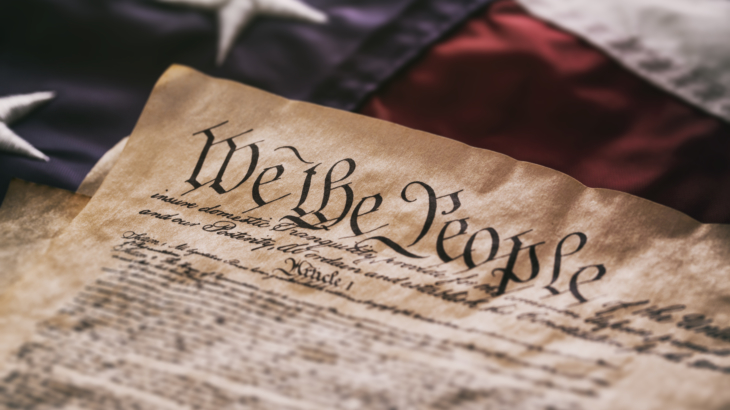
 Will Morrisey is Professor Emeritus of Politics at Hillsdale College, editor and publisher of Will Morrisey Reviews, an online book review publication.
Will Morrisey is Professor Emeritus of Politics at Hillsdale College, editor and publisher of Will Morrisey Reviews, an online book review publication.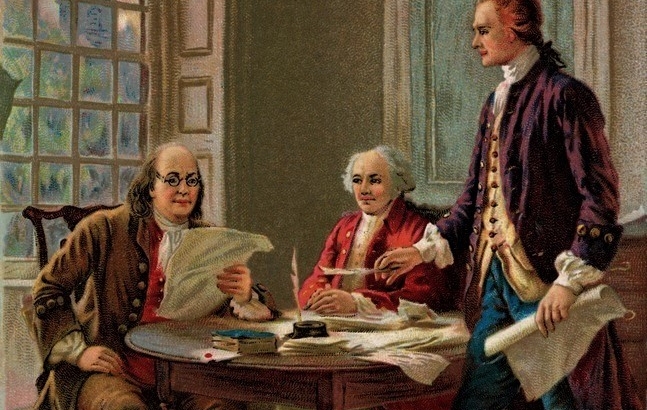

 James P. Pinkerton worked in the White House domestic policy offices of Presidents Ronald Reagan and George H.W. Bush and in their 1980, 1984, 1988 and 1992 presidential campaigns. In 2008, he served as a senior adviser to Mike Huckabee’s presidential campaign. From 1996 to 2016, he was a Contributor to the Fox News Channel. A frequent contributor to Breitbart, The Daily Caller, and The American Conservative, he is a senior fellow at the America First Policy Institute. He is finishing a book on directional investment.
James P. Pinkerton worked in the White House domestic policy offices of Presidents Ronald Reagan and George H.W. Bush and in their 1980, 1984, 1988 and 1992 presidential campaigns. In 2008, he served as a senior adviser to Mike Huckabee’s presidential campaign. From 1996 to 2016, he was a Contributor to the Fox News Channel. A frequent contributor to Breitbart, The Daily Caller, and The American Conservative, he is a senior fellow at the America First Policy Institute. He is finishing a book on directional investment.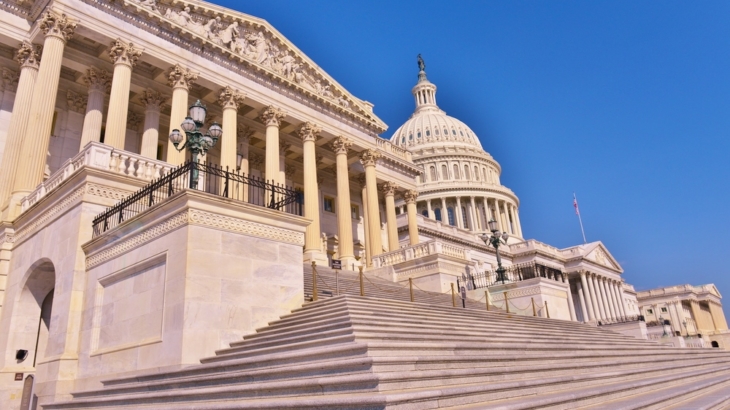
 Ron Meier is a West Point graduate and Vietnam War veteran. He is a student of American history, with a focus on our nation’s founding principles and culture, the Revolutionary War, and the challenges facing America’s Constitutional Republic in the 20th and 21st centuries.
Ron Meier is a West Point graduate and Vietnam War veteran. He is a student of American history, with a focus on our nation’s founding principles and culture, the Revolutionary War, and the challenges facing America’s Constitutional Republic in the 20th and 21st centuries.
 Tony Williams is a Senior Fellow at the Bill of Rights Institute and is the author of six books including Washington and Hamilton: The Alliance that Forged America, with Stephen Knott. Williams is currently writing a book on the Declaration of Independence.
Tony Williams is a Senior Fellow at the Bill of Rights Institute and is the author of six books including Washington and Hamilton: The Alliance that Forged America, with Stephen Knott. Williams is currently writing a book on the Declaration of Independence.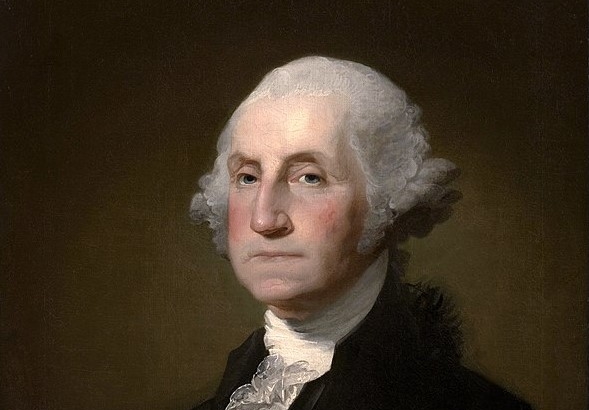

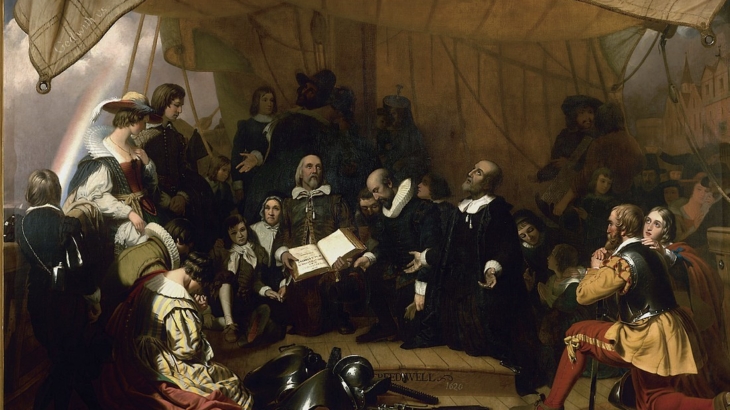 https://en.wikipedia.org/wiki/Mayflower#/media/File:Embarkation_of_the_Pilgrims.jpg
https://en.wikipedia.org/wiki/Mayflower#/media/File:Embarkation_of_the_Pilgrims.jpg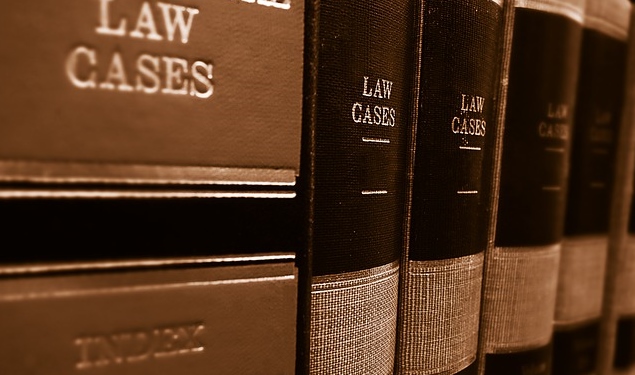
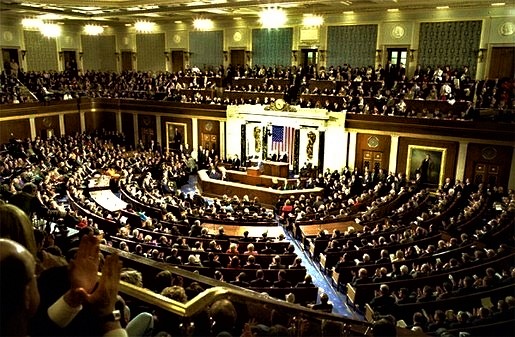
 J. Eric Wise is a partner in the law firm of Alston & Bird.
J. Eric Wise is a partner in the law firm of Alston & Bird.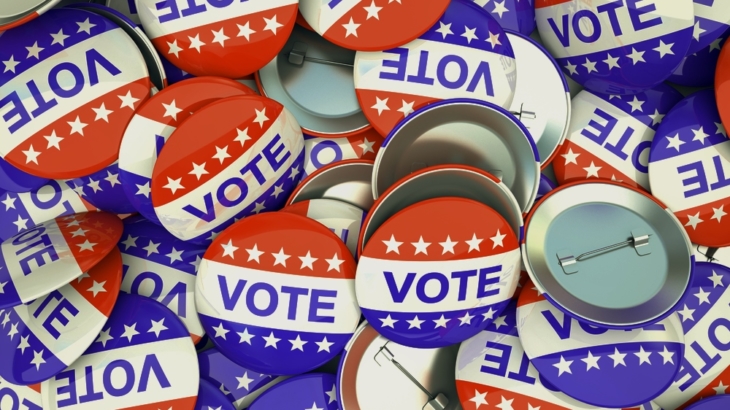
 Tara Ross
Tara Ross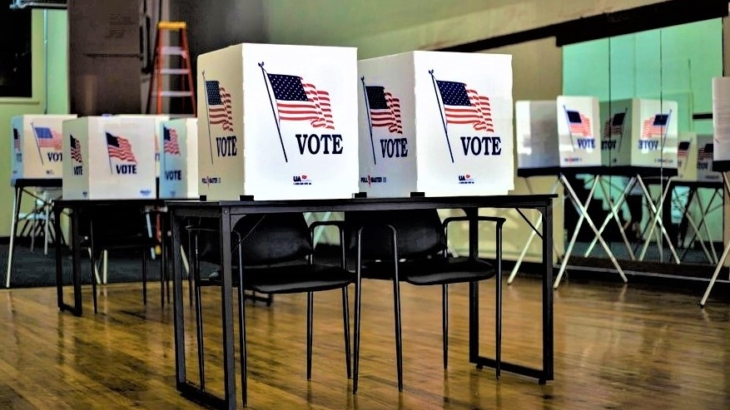
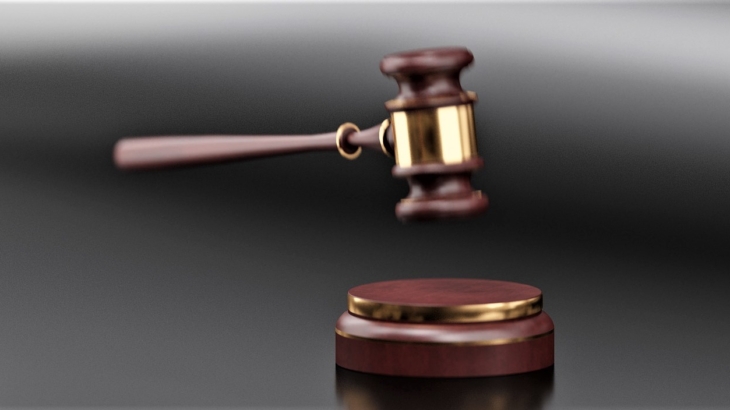
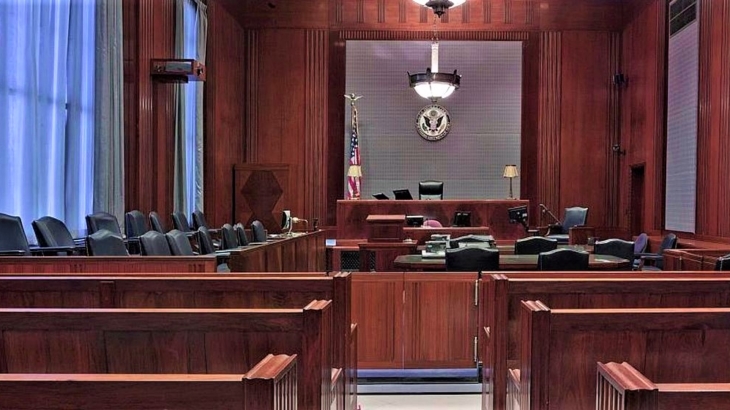

 James S. Humphreys is a professor of United States history at Murray State University in Murray, Kentucky. He is the author of a biography of the southern historian, Francis Butler Simkins, entitled Francis Butler Simkins: A Life (2008), published by the University Press of Florida. He is also the editor of Interpreting American History: the New South (2018) and co-editor of the Interpreting American History series, published by the Kent State University Press.
James S. Humphreys is a professor of United States history at Murray State University in Murray, Kentucky. He is the author of a biography of the southern historian, Francis Butler Simkins, entitled Francis Butler Simkins: A Life (2008), published by the University Press of Florida. He is also the editor of Interpreting American History: the New South (2018) and co-editor of the Interpreting American History series, published by the Kent State University Press. 
 Benjamin Slomski is Assistant Professor of History and Political Science at Ashland University.
Benjamin Slomski is Assistant Professor of History and Political Science at Ashland University.
 Eric C. Sands is Associate Professor of Political Science and International Affairs at Berry College. He has written a book on Abraham Lincoln and edited a second volume on political parties. His teaching and research interests focus on constitutional law, American political thought, the founding, the Civil War and Reconstruction, and political parties.
Eric C. Sands is Associate Professor of Political Science and International Affairs at Berry College. He has written a book on Abraham Lincoln and edited a second volume on political parties. His teaching and research interests focus on constitutional law, American political thought, the founding, the Civil War and Reconstruction, and political parties.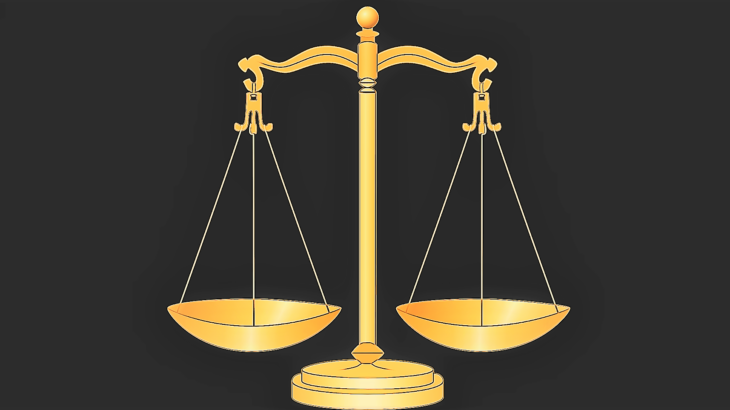
 Ben Peterson is an assistant professor of political science at Abilene Christian University.
Ben Peterson is an assistant professor of political science at Abilene Christian University.
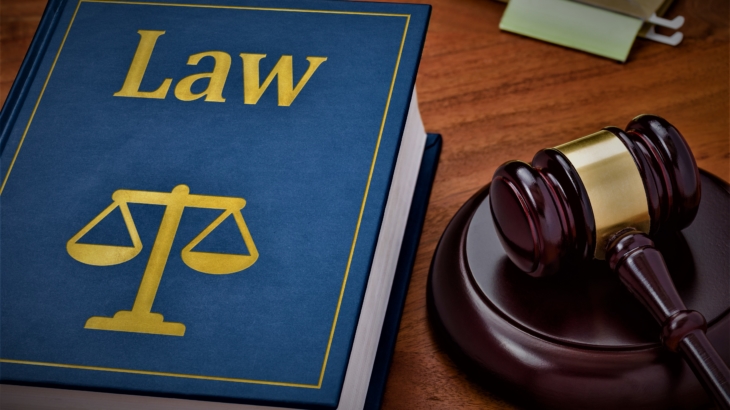


 Dan Cotter is Attorney and Counselor at Howard & Howard Attorneys PLLC. He is the author of The Chief Justices, (published April 2019, Twelve Tables Press). He is also a past president of The Chicago Bar Association. The article contains his opinions and is not to be attributed to anyone else.
Dan Cotter is Attorney and Counselor at Howard & Howard Attorneys PLLC. He is the author of The Chief Justices, (published April 2019, Twelve Tables Press). He is also a past president of The Chicago Bar Association. The article contains his opinions and is not to be attributed to anyone else.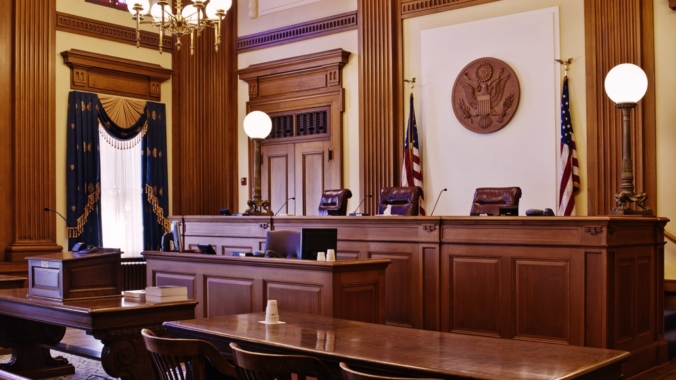

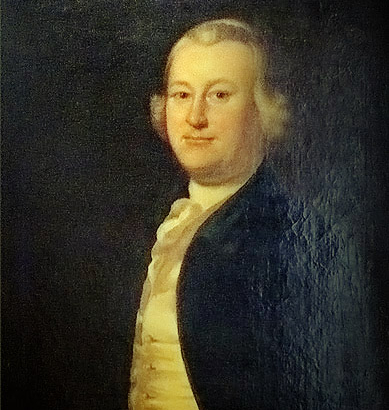
 Essay Read by Constituting America Founder, Actress Janine Turner
Essay Read by Constituting America Founder, Actress Janine Turner Winfield H. Rose, Ph.D., is Distinguished Professor of Political Science Emeritus at Murray State University.
Winfield H. Rose, Ph.D., is Distinguished Professor of Political Science Emeritus at Murray State University.
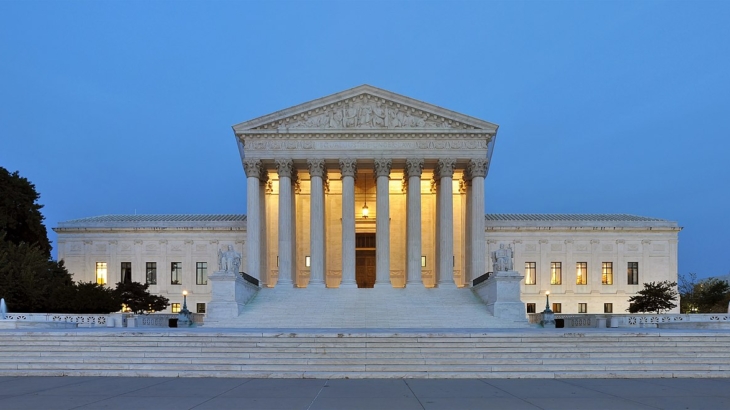
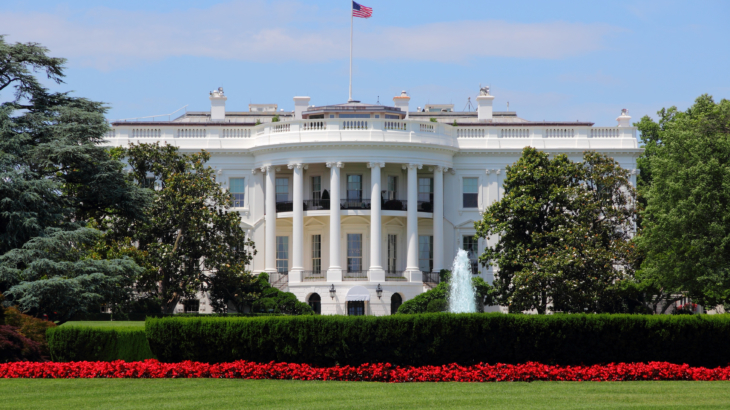


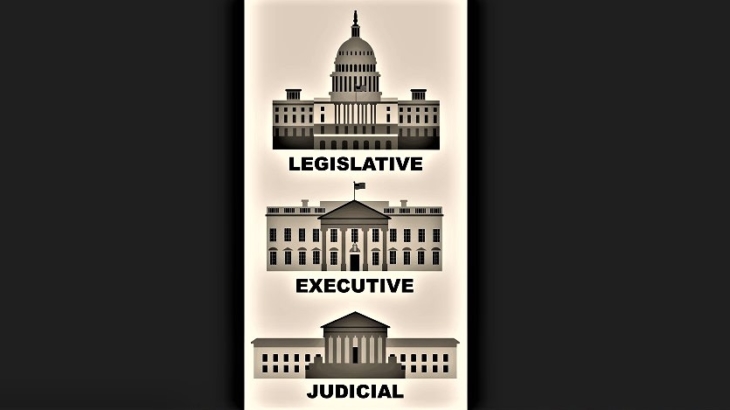
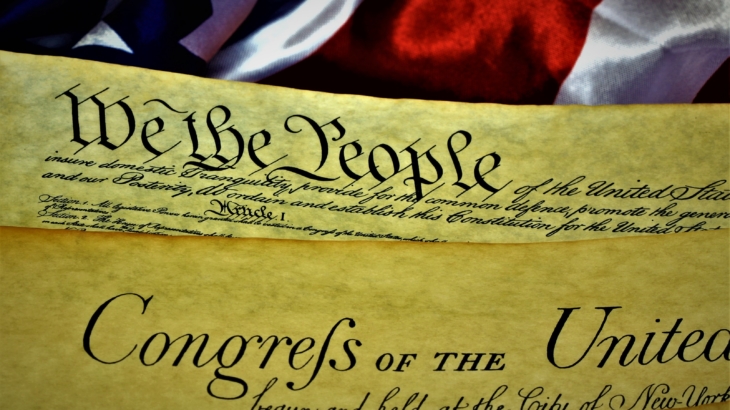
 Adam M. Carrington is an Associate Professor of Politics at Hillsdale College. There, he teaches on matters of Constitutional law, American political institutions, and separation of powers. His writing has appeared in such popular forums as The Wall Street Journal, The Hill, National Review, and Washington Examiner. His book on the jurisprudence of Justice Stephen Field was published in 2017 by Lexington. Carrington received his B.A. from Ashland University and his M.A. and Ph.D. from Baylor University. He lives in Hillsdale with his wife and their two daughters.
Adam M. Carrington is an Associate Professor of Politics at Hillsdale College. There, he teaches on matters of Constitutional law, American political institutions, and separation of powers. His writing has appeared in such popular forums as The Wall Street Journal, The Hill, National Review, and Washington Examiner. His book on the jurisprudence of Justice Stephen Field was published in 2017 by Lexington. Carrington received his B.A. from Ashland University and his M.A. and Ph.D. from Baylor University. He lives in Hillsdale with his wife and their two daughters.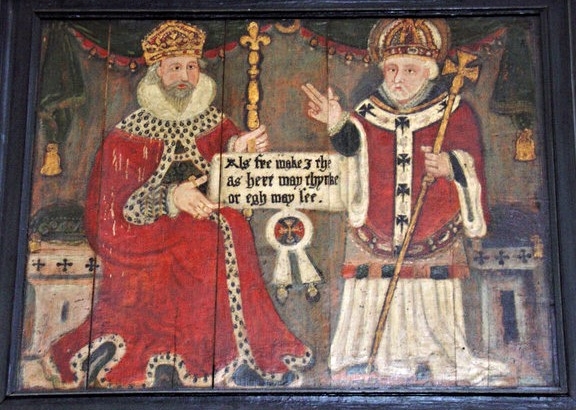



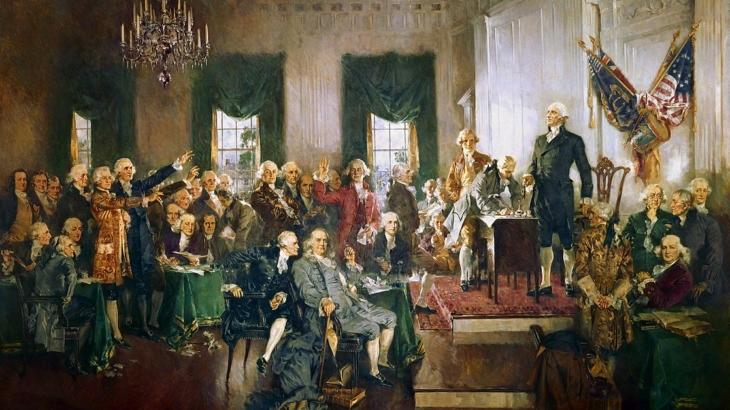
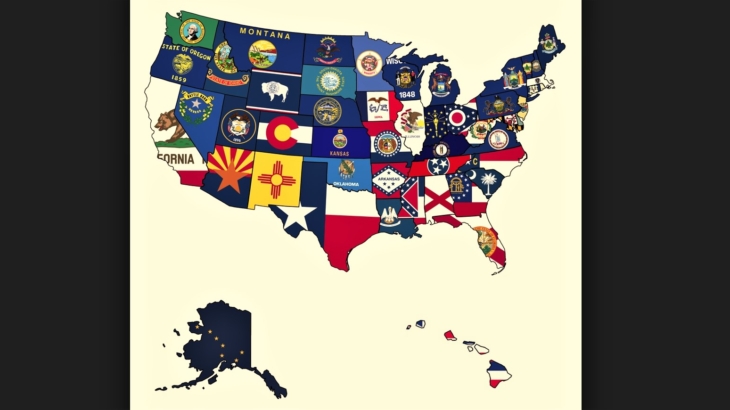
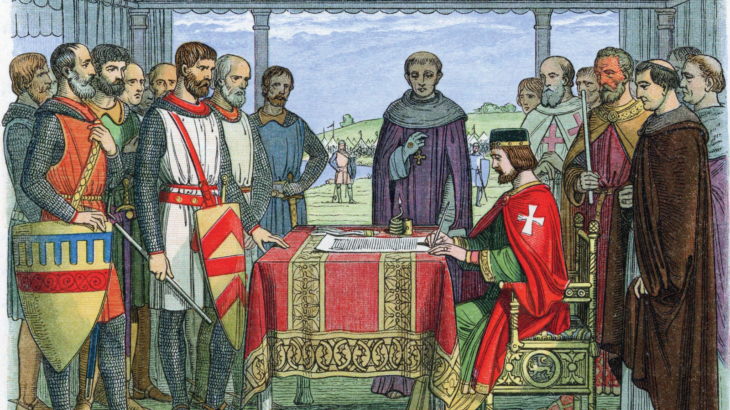
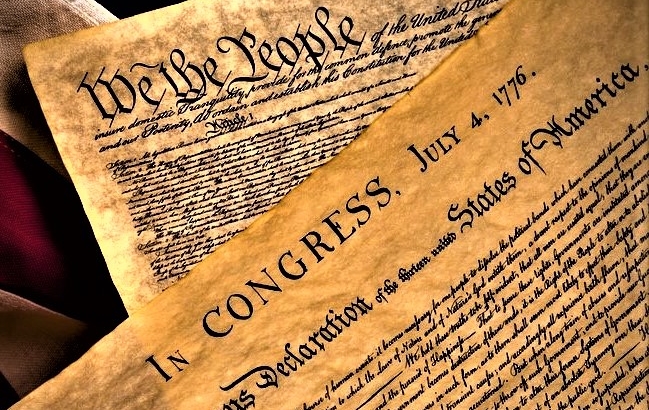
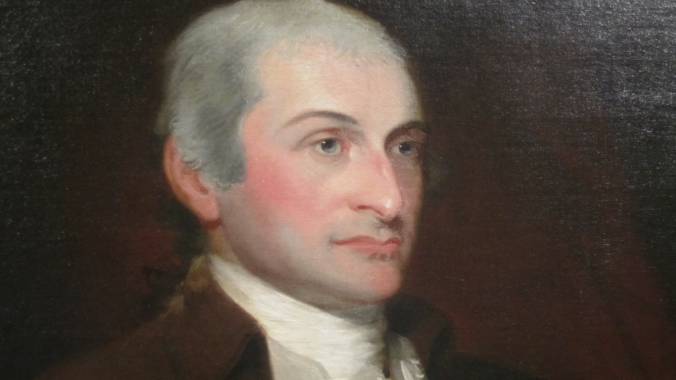
 Josh Herring is Professor of Classical Education at Thales College, where he oversees the development of the Classical Education teacher training program. He also serves as Director of Debate for the Thales Debate Network, and hosts The Optimistic Curmudgeon podcast. He tweets at @TheOptimisticC3.
Josh Herring is Professor of Classical Education at Thales College, where he oversees the development of the Classical Education teacher training program. He also serves as Director of Debate for the Thales Debate Network, and hosts The Optimistic Curmudgeon podcast. He tweets at @TheOptimisticC3.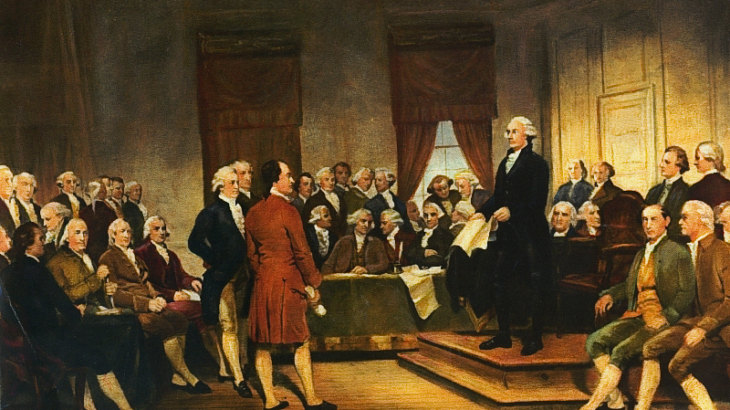
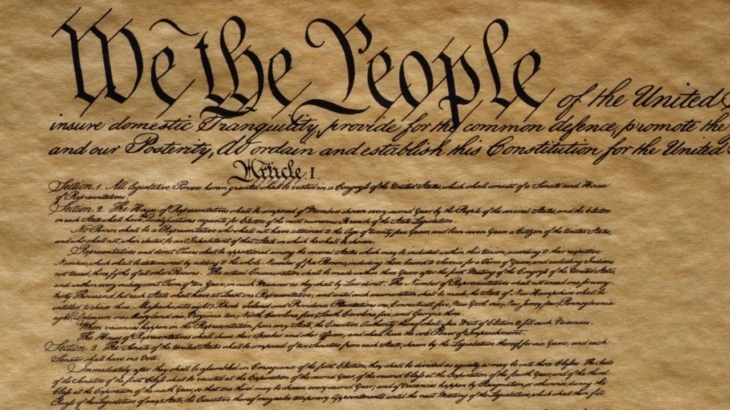
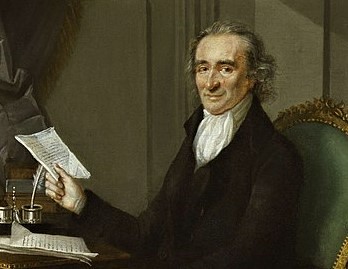
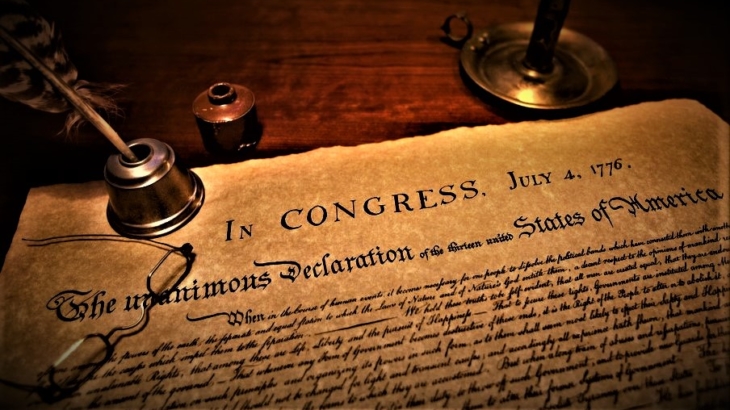
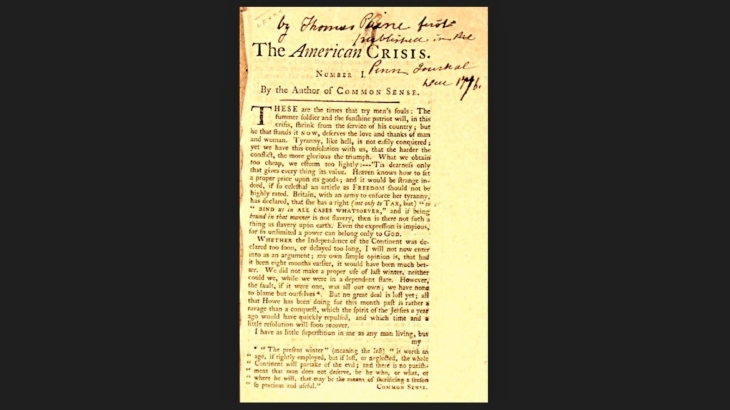
 Bob Brescia, Ed.D. of Odessa is a Teacher of Record for Ector County Independent School District, and an adjunct professor for Wilmington University. He previously served as the Executive Director for The John Ben Shepperd Public Leadership Institute and served as the Head of School for Saint Joseph Academy in Brownsville. He is a board member at Constituting America in Dallas, a member of the Odessa Information & Discussion Group, and an Advisory Board member for Odessa’s Southwest Heritage Credit Union. He is the former chairman of Basin PBS television and the American Red Cross of the Permian Basin and former president of Rotary International – Greater Odessa. He is also a monthly columnist for the American Society for Public Administration in Washington, DC. Brescia has twenty-seven years of military service as a highly decorated Airborne Ranger Cavalry soldier, NCO, and commissioned officer in the United States Army. He received a Bachelor of Arts (summa cum laude) in Civil Government from Norwich University, a Master of Science in Computer Information Systems and a Master of Arts in International Relations from Boston University – European Division, and a Doctor of Education in Executive Leadership with distinction from The George Washington University.
Bob Brescia, Ed.D. of Odessa is a Teacher of Record for Ector County Independent School District, and an adjunct professor for Wilmington University. He previously served as the Executive Director for The John Ben Shepperd Public Leadership Institute and served as the Head of School for Saint Joseph Academy in Brownsville. He is a board member at Constituting America in Dallas, a member of the Odessa Information & Discussion Group, and an Advisory Board member for Odessa’s Southwest Heritage Credit Union. He is the former chairman of Basin PBS television and the American Red Cross of the Permian Basin and former president of Rotary International – Greater Odessa. He is also a monthly columnist for the American Society for Public Administration in Washington, DC. Brescia has twenty-seven years of military service as a highly decorated Airborne Ranger Cavalry soldier, NCO, and commissioned officer in the United States Army. He received a Bachelor of Arts (summa cum laude) in Civil Government from Norwich University, a Master of Science in Computer Information Systems and a Master of Arts in International Relations from Boston University – European Division, and a Doctor of Education in Executive Leadership with distinction from The George Washington University.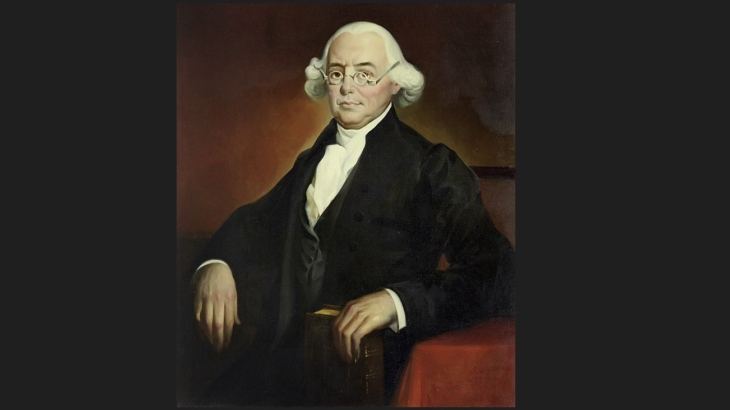
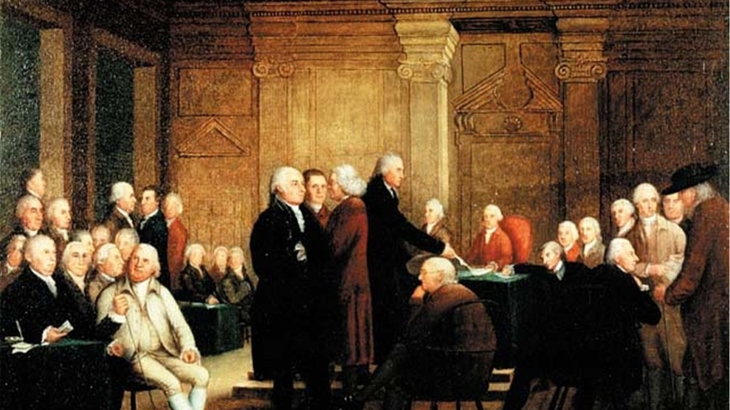
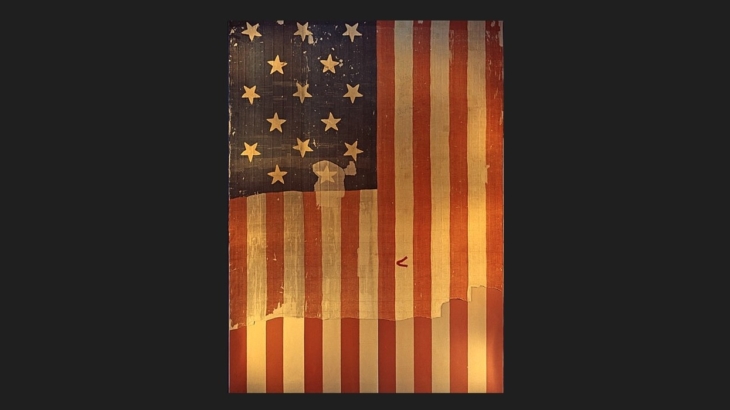
 Tom Hand is creator and publisher of Americana Corner. Tom is a West Point graduate, and serves on the board of trustees for the American Battlefield Trust as well as the National Council for the National Park Foundation.
Tom Hand is creator and publisher of Americana Corner. Tom is a West Point graduate, and serves on the board of trustees for the American Battlefield Trust as well as the National Council for the National Park Foundation.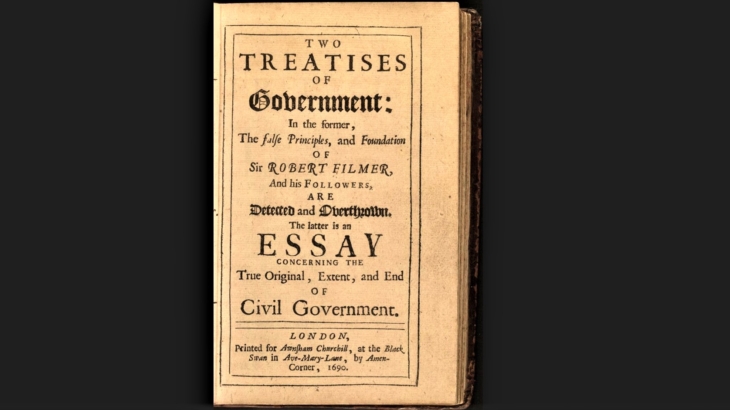
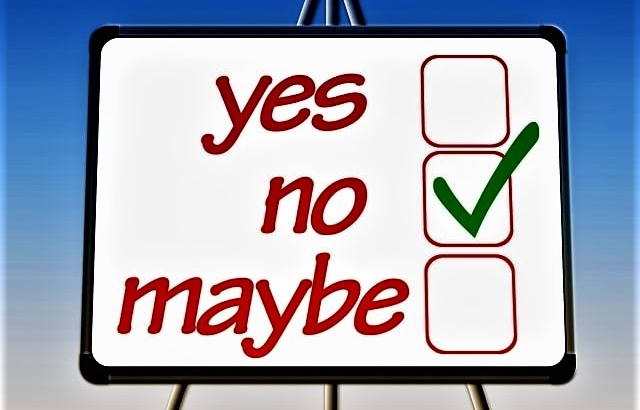
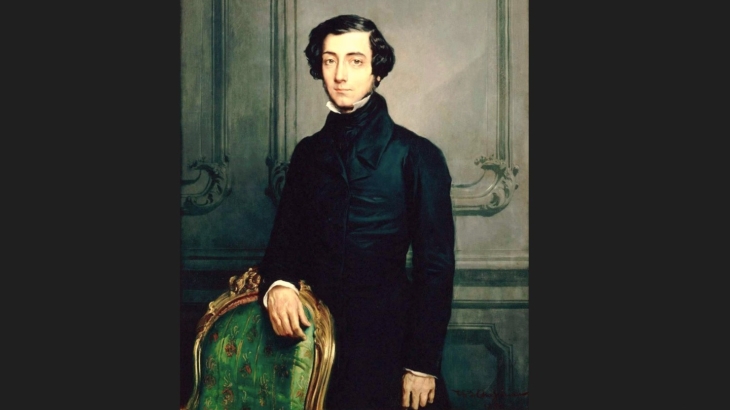
 Joseph M. Knippenberg is Professor of Politics at Oglethorpe University in Brookhaven, GA, where he has taught since 1985.
Joseph M. Knippenberg is Professor of Politics at Oglethorpe University in Brookhaven, GA, where he has taught since 1985.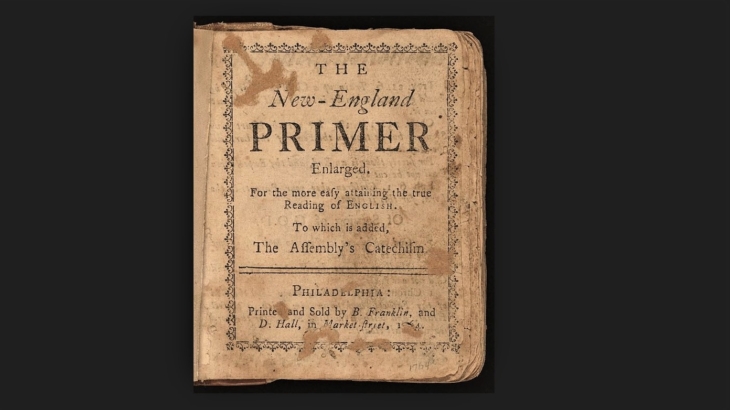 https://en.wikipedia.org/wiki/The_New_England_Primer#/media/File:New-England_Primer_Enlarged_printed_and_sold_by_Benjamin_Franklin.jpg
https://en.wikipedia.org/wiki/The_New_England_Primer#/media/File:New-England_Primer_Enlarged_printed_and_sold_by_Benjamin_Franklin.jpg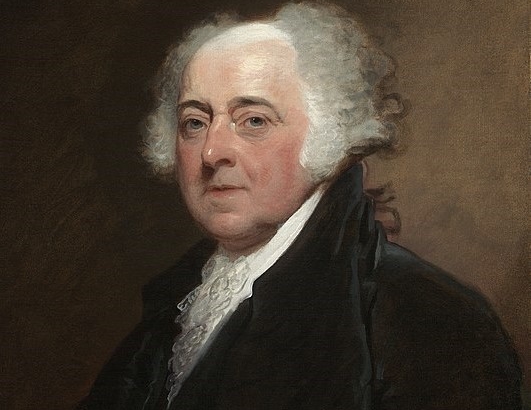
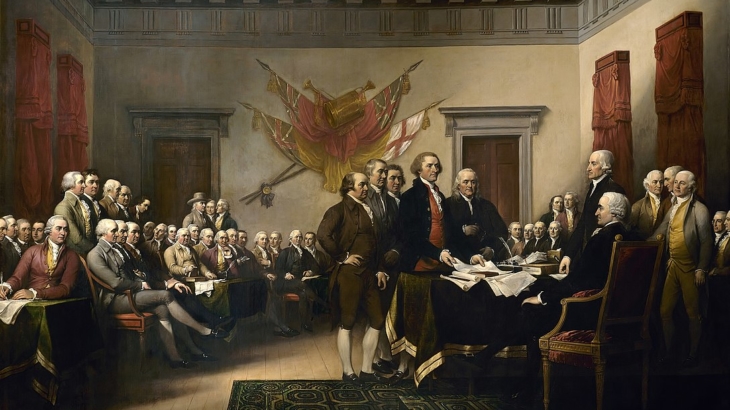
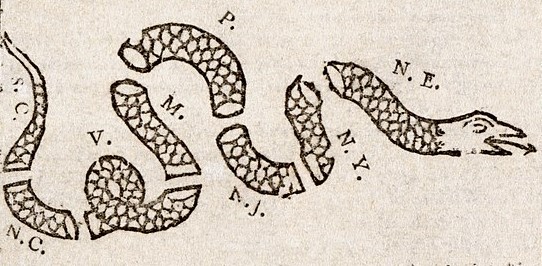
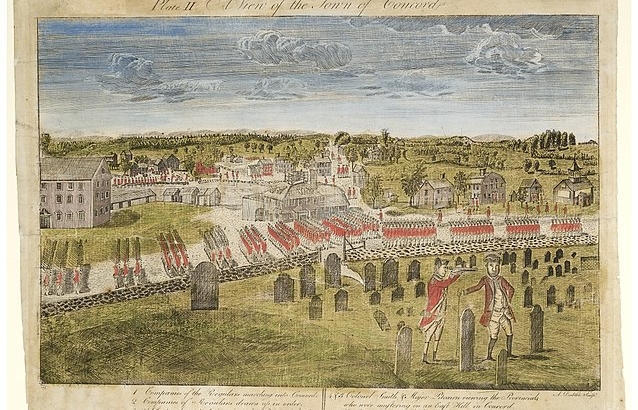 https://en.wikipedia.org/wiki/American_Revolutionary_War#/media/File:British_Army_in_Concord_Detail.jpg
https://en.wikipedia.org/wiki/American_Revolutionary_War#/media/File:British_Army_in_Concord_Detail.jpg Jay McConville is a military veteran, management professional, and active civic volunteer currently pursuing a Ph.D. in Public Policy and Administration at the L. Douglas Wilder School of Government and Public Affairs, Virginia Commonwealth University. His studies focus on improving health outcomes through food assistance policy. Prior to beginning his doctoral studies, he held multiple key technology and management positions within the Aerospace and Defense industry, including twice as President and CEO. He now works as a personal trainer and works to improve health and fitness through both his work and study. Jay served in the U.S. Army as an Intelligence Officer, and has also been active in civic and industry volunteer associations, including running for elected office, serving as a political party chairman, and serving multiple terms as President of both his industry association’s Washington DC Chapter and his local youth sports association. Today he serves on the Operating Board of Directors of Constituting America. He holds a Bachelor of Arts in Government from George Mason University, and a Master of Science in Strategic Intelligence from the Defense Intelligence College. Jay lives in Richmond with his wife Susan Ulsamer McConville. They have three children and four grandchildren.
Jay McConville is a military veteran, management professional, and active civic volunteer currently pursuing a Ph.D. in Public Policy and Administration at the L. Douglas Wilder School of Government and Public Affairs, Virginia Commonwealth University. His studies focus on improving health outcomes through food assistance policy. Prior to beginning his doctoral studies, he held multiple key technology and management positions within the Aerospace and Defense industry, including twice as President and CEO. He now works as a personal trainer and works to improve health and fitness through both his work and study. Jay served in the U.S. Army as an Intelligence Officer, and has also been active in civic and industry volunteer associations, including running for elected office, serving as a political party chairman, and serving multiple terms as President of both his industry association’s Washington DC Chapter and his local youth sports association. Today he serves on the Operating Board of Directors of Constituting America. He holds a Bachelor of Arts in Government from George Mason University, and a Master of Science in Strategic Intelligence from the Defense Intelligence College. Jay lives in Richmond with his wife Susan Ulsamer McConville. They have three children and four grandchildren.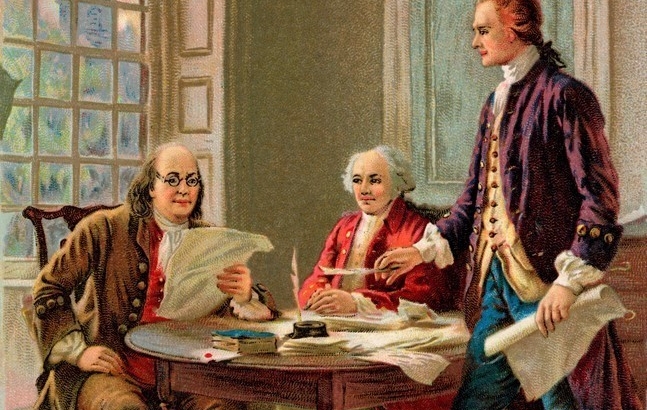
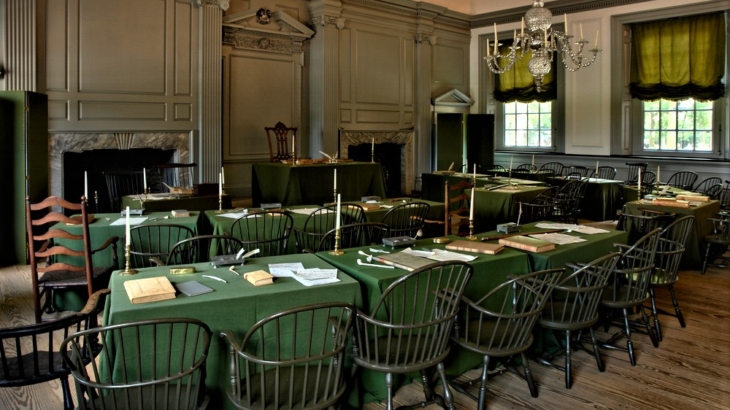
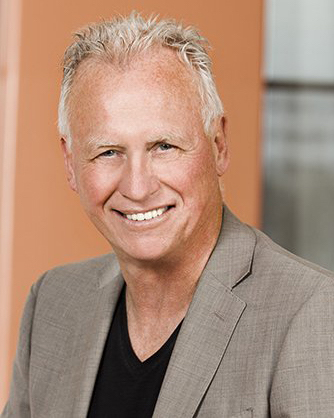 Joerg W. Knipprath is an expert on constitutional law, and member of the Southwestern Law School faculty. Professor Knipprath has been interviewed by print and broadcast media on a number of related topics ranging from recent U.S. Supreme Court decisions to presidential succession. He has written opinion pieces and articles on business and securities law as well as constitutional issues, and has focused his more recent research on the effect of judicial review on the evolution of constitutional law. He has also spoken on business law and contemporary constitutional issues before professional and community forums, and serves as a Constituting America Fellow.
Joerg W. Knipprath is an expert on constitutional law, and member of the Southwestern Law School faculty. Professor Knipprath has been interviewed by print and broadcast media on a number of related topics ranging from recent U.S. Supreme Court decisions to presidential succession. He has written opinion pieces and articles on business and securities law as well as constitutional issues, and has focused his more recent research on the effect of judicial review on the evolution of constitutional law. He has also spoken on business law and contemporary constitutional issues before professional and community forums, and serves as a Constituting America Fellow.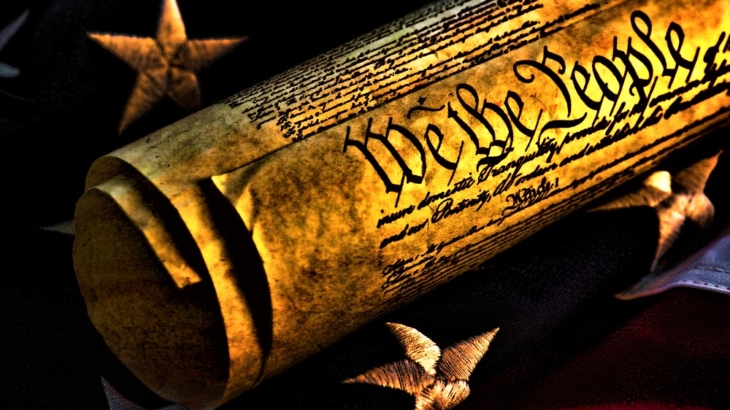
 Joerg W. Knipprath is an expert on constitutional law, and member of the Southwestern Law School faculty. Professor Knipprath has been interviewed by print and broadcast media on a number of related topics ranging from recent U.S. Supreme Court decisions to presidential succession. He has written opinion pieces and articles on business and securities law as well as constitutional issues, and has focused his more recent research on the effect of judicial review on the evolution of constitutional law. He has also spoken on business law and contemporary constitutional issues before professional and community forums, and serves as a Constituting America Fellow.
Joerg W. Knipprath is an expert on constitutional law, and member of the Southwestern Law School faculty. Professor Knipprath has been interviewed by print and broadcast media on a number of related topics ranging from recent U.S. Supreme Court decisions to presidential succession. He has written opinion pieces and articles on business and securities law as well as constitutional issues, and has focused his more recent research on the effect of judicial review on the evolution of constitutional law. He has also spoken on business law and contemporary constitutional issues before professional and community forums, and serves as a Constituting America Fellow.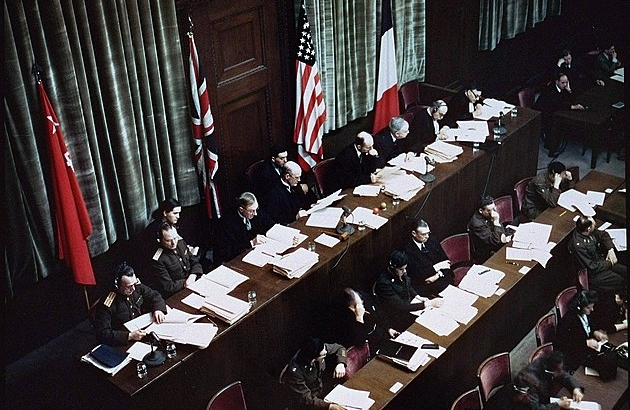 https://en.wikipedia.org/wiki/Nuremberg_trials#/media/File:Color_photograph_of_judges'_bench_at_IMT.jpg
https://en.wikipedia.org/wiki/Nuremberg_trials#/media/File:Color_photograph_of_judges'_bench_at_IMT.jpg https://en.wikipedia.org/wiki/Cambodian_genocide
https://en.wikipedia.org/wiki/Cambodian_genocide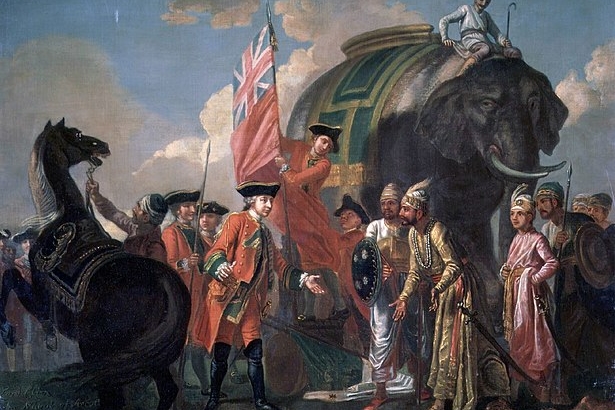 https://commons.wikimedia.org/wiki/File:Clive.jpg
https://commons.wikimedia.org/wiki/File:Clive.jpg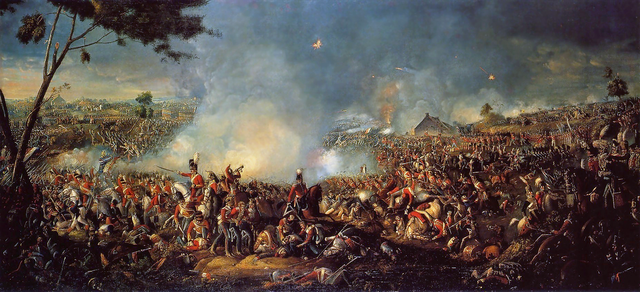 https://en.wikipedia.org/wiki/British_Empire#/media/File:Battle_of_Waterloo_1815.PNG
https://en.wikipedia.org/wiki/British_Empire#/media/File:Battle_of_Waterloo_1815.PNG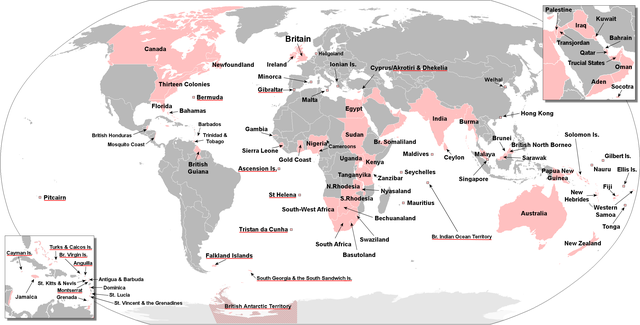 https://en.wikipedia.org/wiki/British_Empire#/media/File:The_British_Empire.png
https://en.wikipedia.org/wiki/British_Empire#/media/File:The_British_Empire.png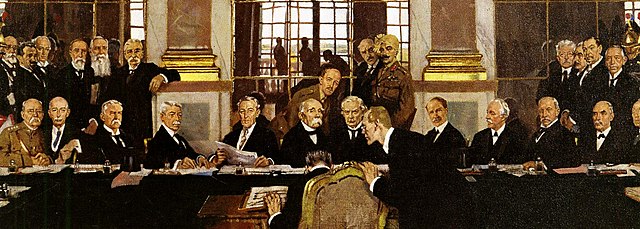 https://en.wikipedia.org/wiki/Paris_Peace_Conference_(1919%E2%80%931920)#/media/File:William_Orpen_%E2%80%93_The_Signing_of_Peace_in_the_Hall_of_Mirrors,_Versailles_1919,_Ausschnitt.jpg
https://en.wikipedia.org/wiki/Paris_Peace_Conference_(1919%E2%80%931920)#/media/File:William_Orpen_%E2%80%93_The_Signing_of_Peace_in_the_Hall_of_Mirrors,_Versailles_1919,_Ausschnitt.jpg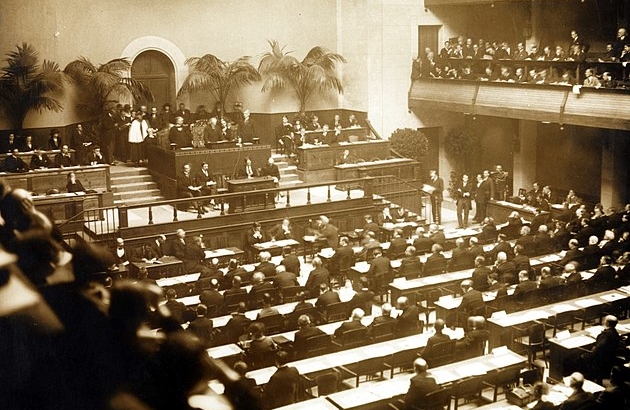 https://en.wikipedia.org/wiki/League_of_Nations#/media/File:No-nb_bldsa_5c006.jpg
https://en.wikipedia.org/wiki/League_of_Nations#/media/File:No-nb_bldsa_5c006.jpg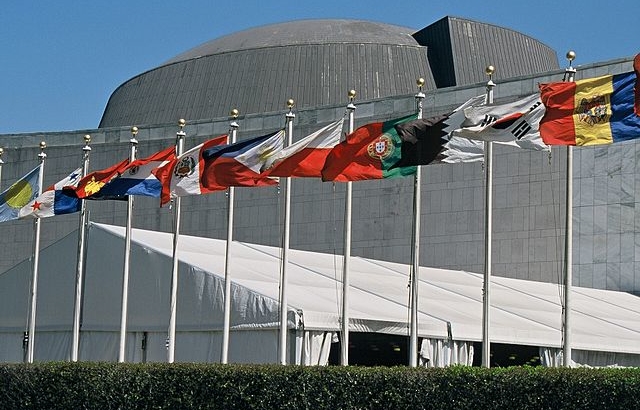 https://en.wikipedia.org/wiki/Headquarters_of_the_United_Nations#/media/File:UN_Members_Flags2.JPG
https://en.wikipedia.org/wiki/Headquarters_of_the_United_Nations#/media/File:UN_Members_Flags2.JPG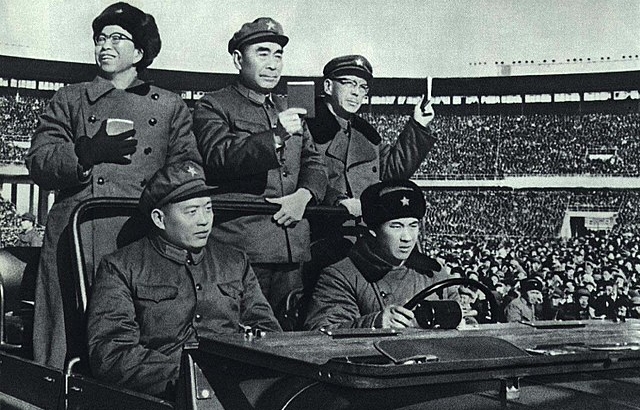 https://en.wikipedia.org/wiki/Cultural_Revolution#/media/File:1967-03_1966%E5%B9%B412%E6%9C%8826%E6%97%A5%E6%B1%9F%E9%9D%92%E5%91%A8%E6%81%A9%E6%9D%A5%E5%BA%B7%E7%94%9F%E6%8E%A5%E8%A7%81%E7%BA%A2%E5%8D%AB%E5%85%B5.jpg
https://en.wikipedia.org/wiki/Cultural_Revolution#/media/File:1967-03_1966%E5%B9%B412%E6%9C%8826%E6%97%A5%E6%B1%9F%E9%9D%92%E5%91%A8%E6%81%A9%E6%9D%A5%E5%BA%B7%E7%94%9F%E6%8E%A5%E8%A7%81%E7%BA%A2%E5%8D%AB%E5%85%B5.jpg Dave Kopel
Dave Kopel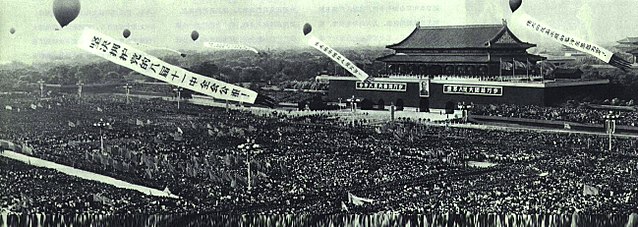 https://en.wikipedia.org/wiki/Cultural_Revolution#/media/File:1966-11_1966%E5%B9%B49%E6%9C%8815%E6%97%A5%E5%A4%A9%E5%AE%89%E9%97%A8%E6%B8%B8%E8%A1%8C-%E5%85%AB%E5%B1%8A%E5%8D%81%E4%B8%80%E4%B8%AD.jpg
https://en.wikipedia.org/wiki/Cultural_Revolution#/media/File:1966-11_1966%E5%B9%B49%E6%9C%8815%E6%97%A5%E5%A4%A9%E5%AE%89%E9%97%A8%E6%B8%B8%E8%A1%8C-%E5%85%AB%E5%B1%8A%E5%8D%81%E4%B8%80%E4%B8%AD.jpg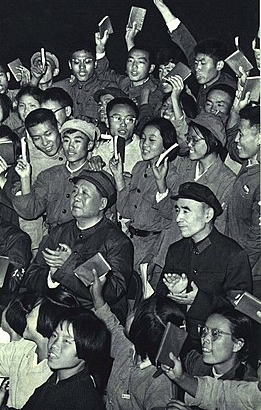 https://en.wikipedia.org/wiki/Cultural_Revolution#/media/File:1966-11_1966%E5%B9%B4%E6%AF%9B%E6%B3%BD%E4%B8%9C%E6%9E%97%E5%BD%AA%E4%B8%8E%E7%BA%A2%E5%8D%AB%E5%85%B5.jpg
https://en.wikipedia.org/wiki/Cultural_Revolution#/media/File:1966-11_1966%E5%B9%B4%E6%AF%9B%E6%B3%BD%E4%B8%9C%E6%9E%97%E5%BD%AA%E4%B8%8E%E7%BA%A2%E5%8D%AB%E5%85%B5.jpg
 Jeanne McKinney is an award-winning writer whose focus and passion is our United States active-duty military members and military news. Her Patriot Profiles offer an inside look at the amazing active-duty men and women in all Armed Services, including U.S. Marine Corps, Navy, Army, Air Force, Coast Guard, and National Guard. Reporting includes first-hand accounts of combat missions in Iraq and Afghanistan, the fight against violent terror groups, global defense, tactical training and readiness, humanitarian and disaster relief assistance, next-generation defense technology, family survival at home, U.S. port and border protection and illegal immigration, women in combat, honoring the Fallen, Wounded Warriors, Military Working Dogs, Crisis Response, and much more. Starting in 2012, McKinney has won multiple San Diego Press Club “Excellence in Journalism Awards,” including eight “First Place” honors, as well as multiple second and third place recognition for her Patriot Profiles published printed articles. Including awards for Patriot Profiles military films. During the year 2020, McKinney has written and published dozens of investigative articles in her ongoing fight to preserve America the Republic, the Constitution, and its laws. One such story was selected for use in a legal brief in the national fight for 2020 election integrity.
Jeanne McKinney is an award-winning writer whose focus and passion is our United States active-duty military members and military news. Her Patriot Profiles offer an inside look at the amazing active-duty men and women in all Armed Services, including U.S. Marine Corps, Navy, Army, Air Force, Coast Guard, and National Guard. Reporting includes first-hand accounts of combat missions in Iraq and Afghanistan, the fight against violent terror groups, global defense, tactical training and readiness, humanitarian and disaster relief assistance, next-generation defense technology, family survival at home, U.S. port and border protection and illegal immigration, women in combat, honoring the Fallen, Wounded Warriors, Military Working Dogs, Crisis Response, and much more. Starting in 2012, McKinney has won multiple San Diego Press Club “Excellence in Journalism Awards,” including eight “First Place” honors, as well as multiple second and third place recognition for her Patriot Profiles published printed articles. Including awards for Patriot Profiles military films. During the year 2020, McKinney has written and published dozens of investigative articles in her ongoing fight to preserve America the Republic, the Constitution, and its laws. One such story was selected for use in a legal brief in the national fight for 2020 election integrity. https://en.wikipedia.org/wiki/Allies_of_World_War_II#/media/File:Map_of_participants_in_World_War_II.png
https://en.wikipedia.org/wiki/Allies_of_World_War_II#/media/File:Map_of_participants_in_World_War_II.png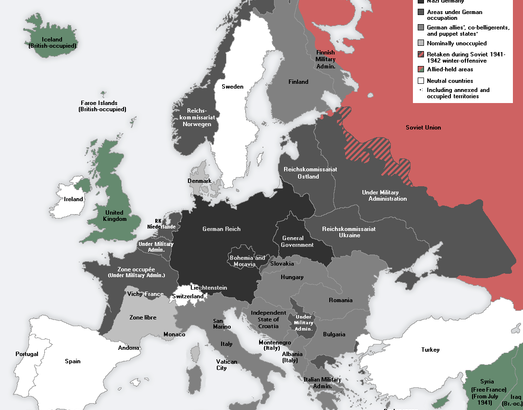 https://en.wikipedia.org/wiki/German-occupied_Europe#/media/File:Europe_under_Nazi_domination.png
https://en.wikipedia.org/wiki/German-occupied_Europe#/media/File:Europe_under_Nazi_domination.png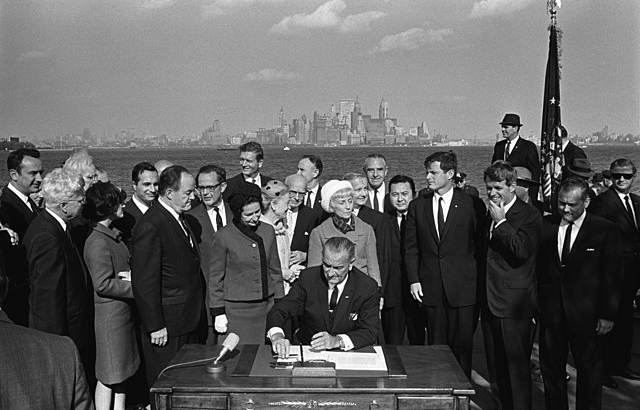
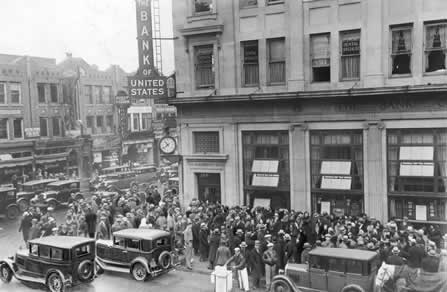
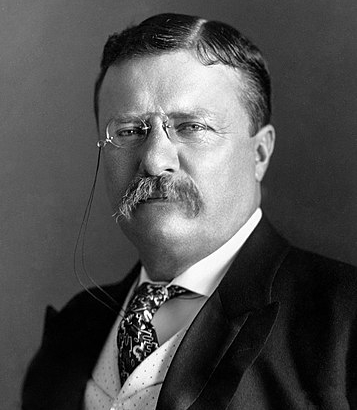
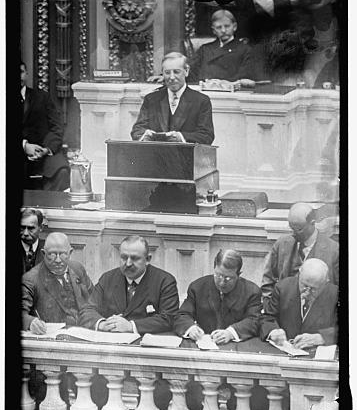 https://en.wikipedia.org/wiki/Woodrow_Wilson#/media/File:Congress_opening_message_63rd_02406a.tif
https://en.wikipedia.org/wiki/Woodrow_Wilson#/media/File:Congress_opening_message_63rd_02406a.tif Will Morrisey is Professor Emeritus of Politics at Hillsdale College, and Editor and Publisher of Will Morrisey Reviews.
Will Morrisey is Professor Emeritus of Politics at Hillsdale College, and Editor and Publisher of Will Morrisey Reviews.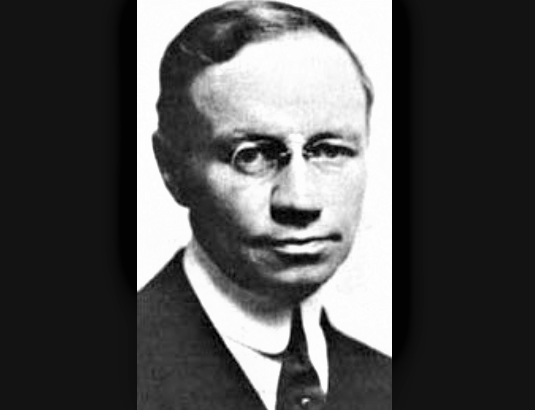 https://en.wikipedia.org/wiki/Herbert_Croly
https://en.wikipedia.org/wiki/Herbert_Croly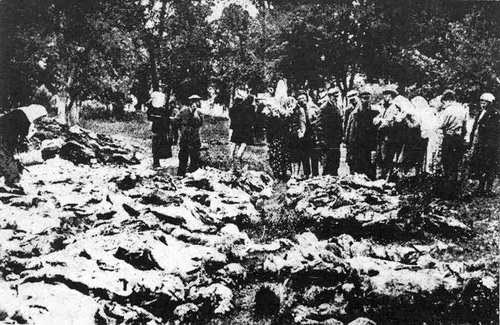 https://en.wikipedia.org/wiki/Vinnytsia_massacre#/media/File:Vinnycia16.jpg
https://en.wikipedia.org/wiki/Vinnytsia_massacre#/media/File:Vinnycia16.jpg
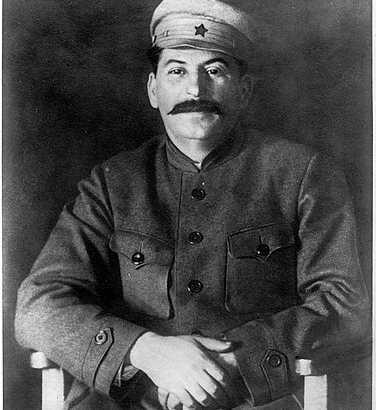 https://en.wikipedia.org/wiki/Joseph_Stalin#/media/File:Stalin_1920-1.jpg
https://en.wikipedia.org/wiki/Joseph_Stalin#/media/File:Stalin_1920-1.jpg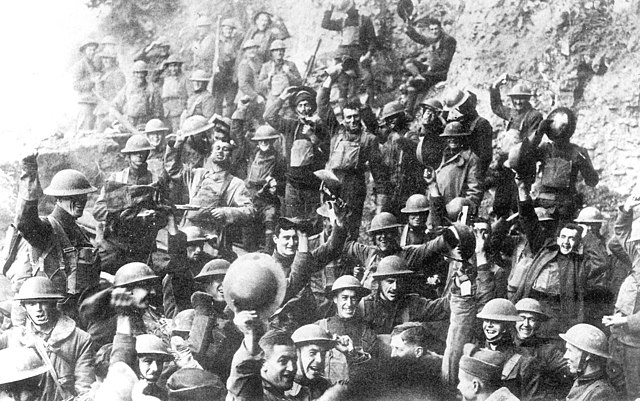 https://en.wikipedia.org/wiki/United_States_in_World_War_I#/media/File:US_64th_regiment_celebrate_the_Armistice.jpg
https://en.wikipedia.org/wiki/United_States_in_World_War_I#/media/File:US_64th_regiment_celebrate_the_Armistice.jpg https://en.wikipedia.org/wiki/Yugoslav_monitor_Sava#/media/File:SS_Bodrog_1914.jpg
https://en.wikipedia.org/wiki/Yugoslav_monitor_Sava#/media/File:SS_Bodrog_1914.jpg Thomas Bruscino is Associate Professor of History in the Department of Military Strategy, Planning, and Operations at the United States Army War College. He holds a Ph.D. in military history from Ohio University and has been a historian at the US Army Center of Military History in Washington, DC and the US Army Combat Studies Institute at Fort Leavenworth, and a professor at the US Army School of Advanced Military Studies. He is the author of A Nation Forged in War: How World War II Taught Americans to Get Along(University of Tennessee Press, 2010), and Out of Bounds: Transnational Sanctuary in Irregular Warfare (CSI Press, 2006), and numerous book chapters. His writings have appeared in the Claremont Review of Books, Army History, The New Criterion, Military Review, The Journal of Military History, White House Studies, War & Society, War in History, The Journal of America’s Military Past, Infinity Journal, Doublethink, Reviews in American History, Joint Force Quarterly, and Parameters.
Thomas Bruscino is Associate Professor of History in the Department of Military Strategy, Planning, and Operations at the United States Army War College. He holds a Ph.D. in military history from Ohio University and has been a historian at the US Army Center of Military History in Washington, DC and the US Army Combat Studies Institute at Fort Leavenworth, and a professor at the US Army School of Advanced Military Studies. He is the author of A Nation Forged in War: How World War II Taught Americans to Get Along(University of Tennessee Press, 2010), and Out of Bounds: Transnational Sanctuary in Irregular Warfare (CSI Press, 2006), and numerous book chapters. His writings have appeared in the Claremont Review of Books, Army History, The New Criterion, Military Review, The Journal of Military History, White House Studies, War & Society, War in History, The Journal of America’s Military Past, Infinity Journal, Doublethink, Reviews in American History, Joint Force Quarterly, and Parameters.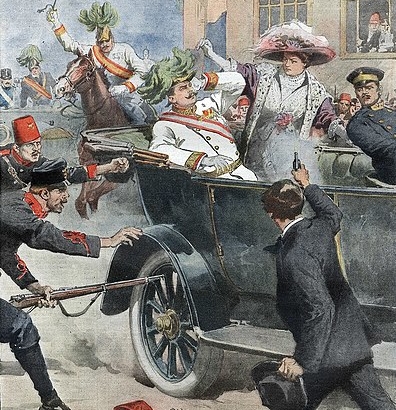
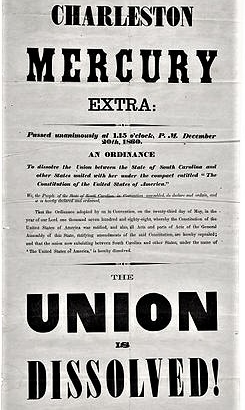 https://en.wikipedia.org/wiki/American_Civil_War#/media/File:Charleston_Mercury_Secession_Broadside,_1860.jpg
https://en.wikipedia.org/wiki/American_Civil_War#/media/File:Charleston_Mercury_Secession_Broadside,_1860.jpg Samuel Postell serves as Executive Director of
Samuel Postell serves as Executive Director of 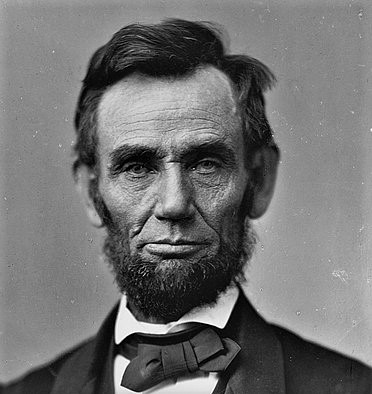 https://en.wikipedia.org/wiki/Abraham_Lincoln#/media/File:Abraham_Lincoln_O-77_matte_collodion_print.jpg
https://en.wikipedia.org/wiki/Abraham_Lincoln#/media/File:Abraham_Lincoln_O-77_matte_collodion_print.jpg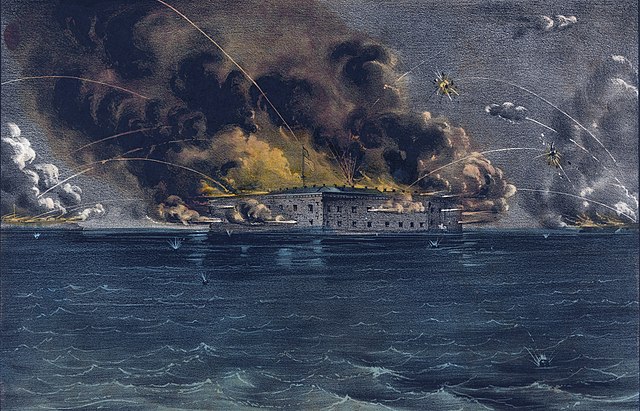 https://en.wikipedia.org/wiki/American_Civil_War#/media/File:Bombardment_of_Fort_Sumter.jpg
https://en.wikipedia.org/wiki/American_Civil_War#/media/File:Bombardment_of_Fort_Sumter.jpg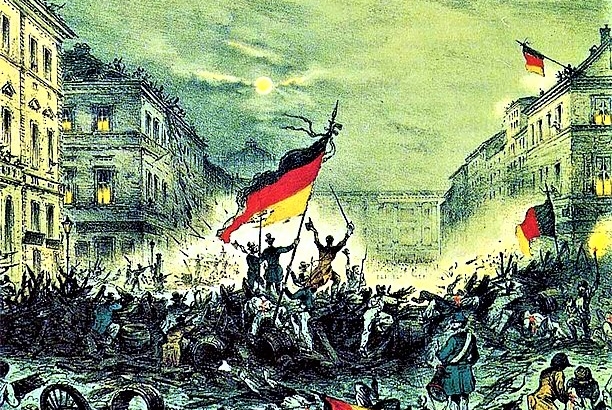 https://en.wikipedia.org/wiki/The_Communist_Manifesto#/media/File:Ereignisblatt_aus_den_revolution%C3%A4ren_M%C3%A4rztagen_18.-19._M%C3%A4rz_1848_mit_einer_Barrikadenszene_aus_der_Breiten_Strasse,_Berlin_01.jpg
https://en.wikipedia.org/wiki/The_Communist_Manifesto#/media/File:Ereignisblatt_aus_den_revolution%C3%A4ren_M%C3%A4rztagen_18.-19._M%C3%A4rz_1848_mit_einer_Barrikadenszene_aus_der_Breiten_Strasse,_Berlin_01.jpg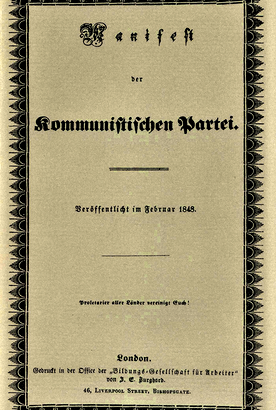 https://en.wikipedia.org/wiki/The_Communist_Manifesto#/media/File:Communist-manifesto.png
https://en.wikipedia.org/wiki/The_Communist_Manifesto#/media/File:Communist-manifesto.png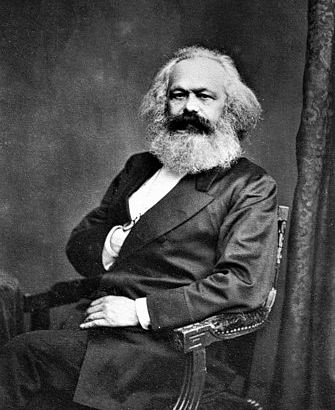
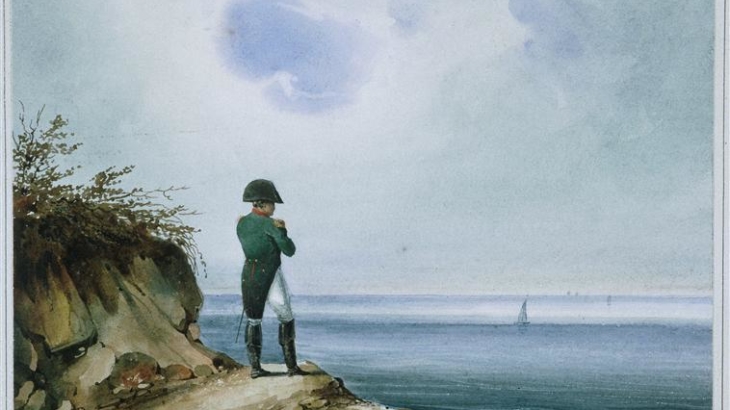 https://en.wikipedia.org/wiki/Napoleon#/media/File:Napoleon_sainthelene.jpg
https://en.wikipedia.org/wiki/Napoleon#/media/File:Napoleon_sainthelene.jpg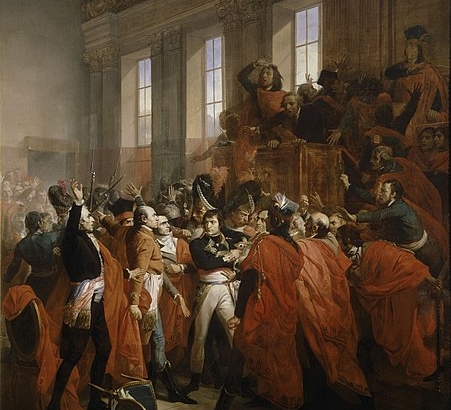 https://en.wikipedia.org/wiki/Napoleon#/media/File:Bouchot_-_Le_general_Bonaparte_au_Conseil_des_Cinq-Cents.jpg
https://en.wikipedia.org/wiki/Napoleon#/media/File:Bouchot_-_Le_general_Bonaparte_au_Conseil_des_Cinq-Cents.jpg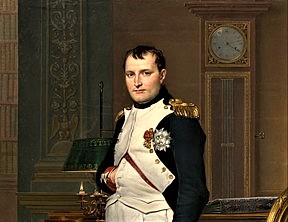 https://en.wikipedia.org/wiki/Napoleon#/media/File:Jacques-Louis_David_-_The_Emperor_Napoleon_in_His_Study_at_the_Tuileries_-_Google_Art_Project.jpg
https://en.wikipedia.org/wiki/Napoleon#/media/File:Jacques-Louis_David_-_The_Emperor_Napoleon_in_His_Study_at_the_Tuileries_-_Google_Art_Project.jpg Adam M. Carrington is an Associate Professor of Politics at Hillsdale College. There, he teaches on matters of Constitutional law, American political institutions, and separation of powers. His writing has appeared in such popular forums as The Wall Street Journal, The Hill, National Review, and Washington Examiner. His book on the jurisprudence of Justice Stephen Field was published in 2017 by Lexington. Carrington received his B.A. from Ashland University and his M.A. and Ph.D. from Baylor University. He lives in Hillsdale with his wife and their two daughters.
Adam M. Carrington is an Associate Professor of Politics at Hillsdale College. There, he teaches on matters of Constitutional law, American political institutions, and separation of powers. His writing has appeared in such popular forums as The Wall Street Journal, The Hill, National Review, and Washington Examiner. His book on the jurisprudence of Justice Stephen Field was published in 2017 by Lexington. Carrington received his B.A. from Ashland University and his M.A. and Ph.D. from Baylor University. He lives in Hillsdale with his wife and their two daughters.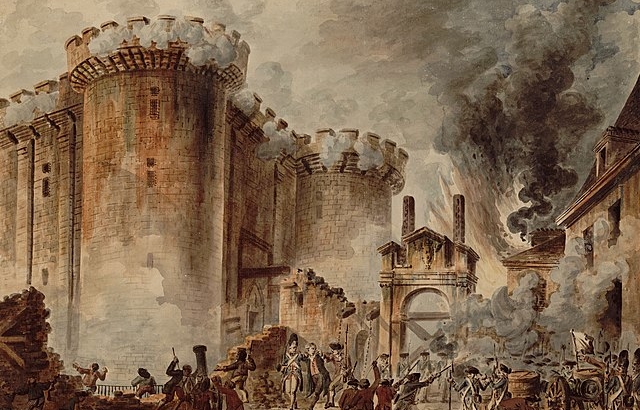
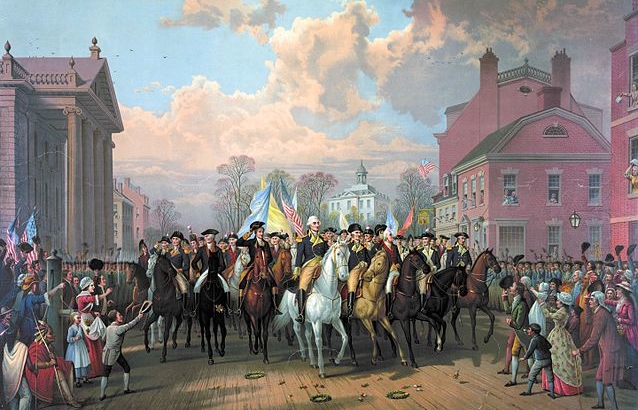 https://en.wikipedia.org/wiki/American_Revolutionary_War#/media/File:Evacuation_Day_and_Washington's_Triumphal_Entry.jpg
https://en.wikipedia.org/wiki/American_Revolutionary_War#/media/File:Evacuation_Day_and_Washington's_Triumphal_Entry.jpg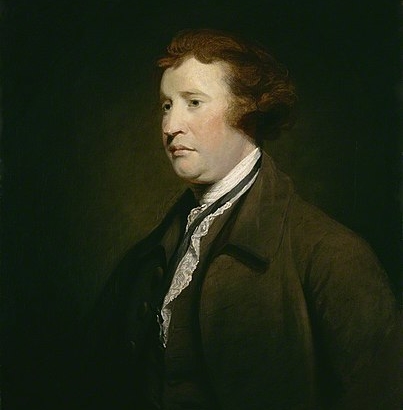 https://en.wikipedia.org/wiki/Edmund_Burke#/media/File:EdmundBurke1771.jpg
https://en.wikipedia.org/wiki/Edmund_Burke#/media/File:EdmundBurke1771.jpg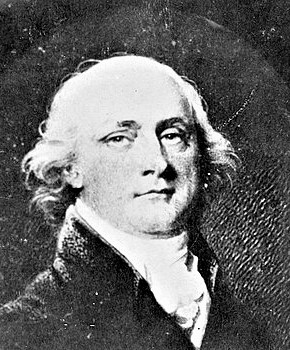 https://en.wikipedia.org/wiki/John_Francis_Mercer#/media/File:Gov._John_Francis_Mercer_-_Robert_Field_1803.jpg
https://en.wikipedia.org/wiki/John_Francis_Mercer#/media/File:Gov._John_Francis_Mercer_-_Robert_Field_1803.jpg Andrea Criswell is a wife and mother of four, who teaches homeschool students in northwest Houston. A graduate of Texas Tech University and Asbury Theological Seminary, she teaches Christian Worldview classes, high school biology and a love for the United States Constitution.
Andrea Criswell is a wife and mother of four, who teaches homeschool students in northwest Houston. A graduate of Texas Tech University and Asbury Theological Seminary, she teaches Christian Worldview classes, high school biology and a love for the United States Constitution. 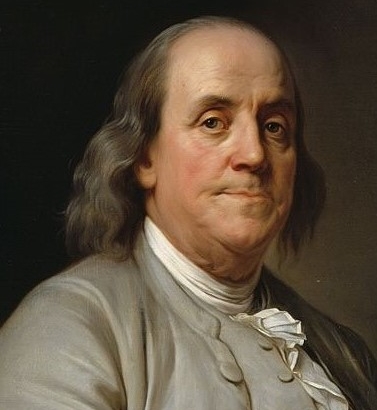
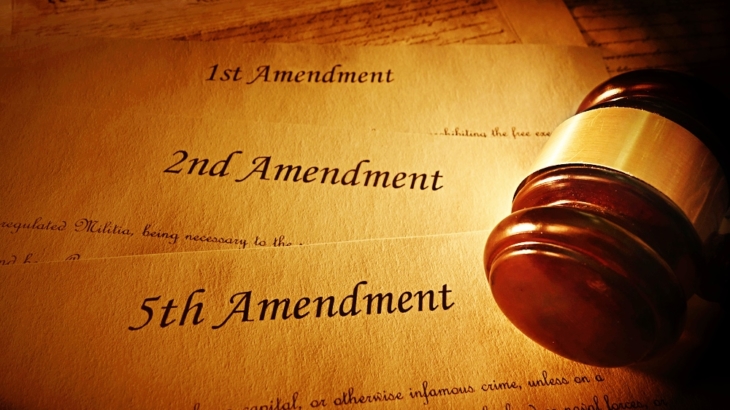
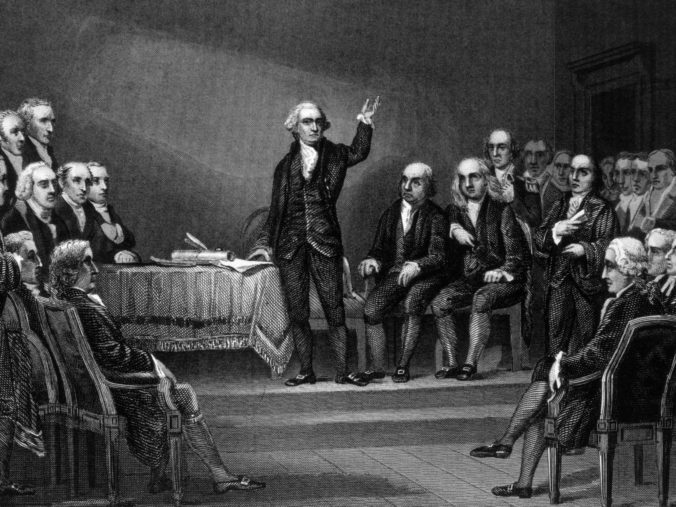
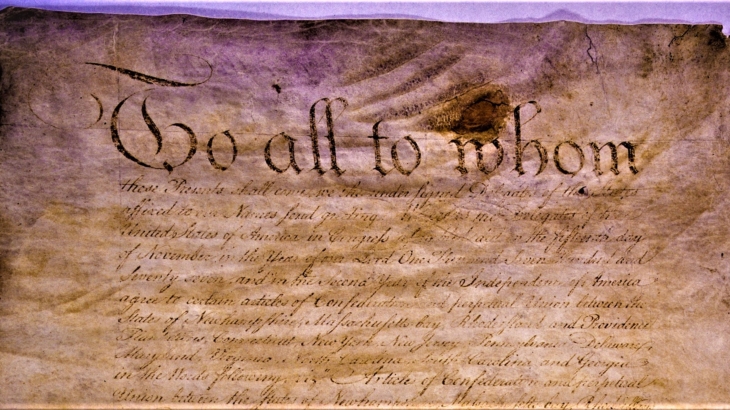 https://en.wikipedia.org/wiki/Articles_of_Confederation#/media/File:Articles_page1.jpg
https://en.wikipedia.org/wiki/Articles_of_Confederation#/media/File:Articles_page1.jpg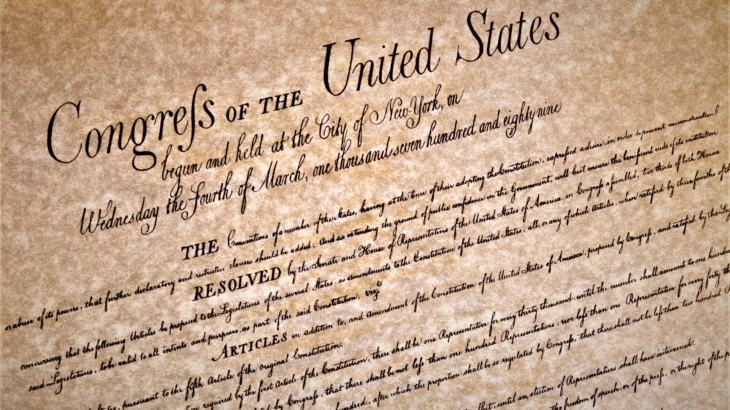
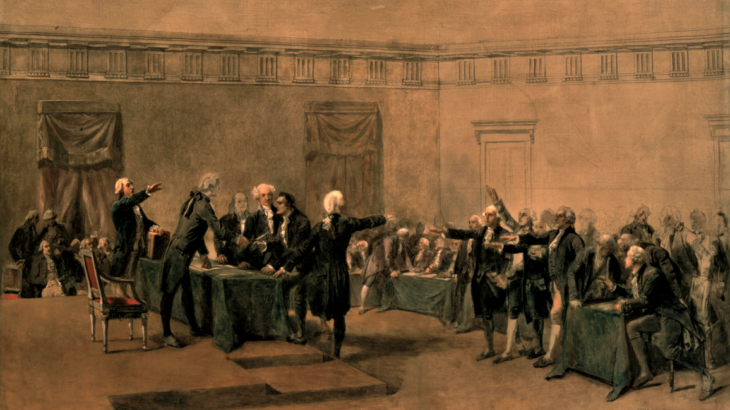 https://en.wikipedia.org/wiki/Signing_of_the_United_States_Declaration_of_Independence#/media/File:Signing_of_Declaration_of_Independence_by_Armand-Dumaresq,_c1873.png
https://en.wikipedia.org/wiki/Signing_of_the_United_States_Declaration_of_Independence#/media/File:Signing_of_Declaration_of_Independence_by_Armand-Dumaresq,_c1873.png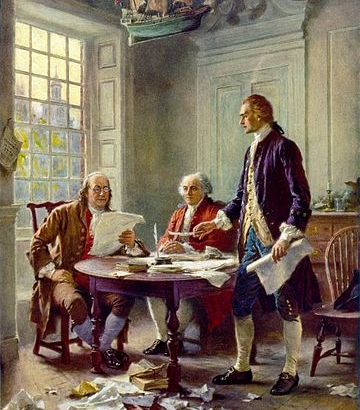 https://en.wikipedia.org/wiki/United_States_Declaration_of_Independence#/media/File:Writing_the_Declaration_of_Independence_1776_cph.3g09904.jpg
https://en.wikipedia.org/wiki/United_States_Declaration_of_Independence#/media/File:Writing_the_Declaration_of_Independence_1776_cph.3g09904.jpg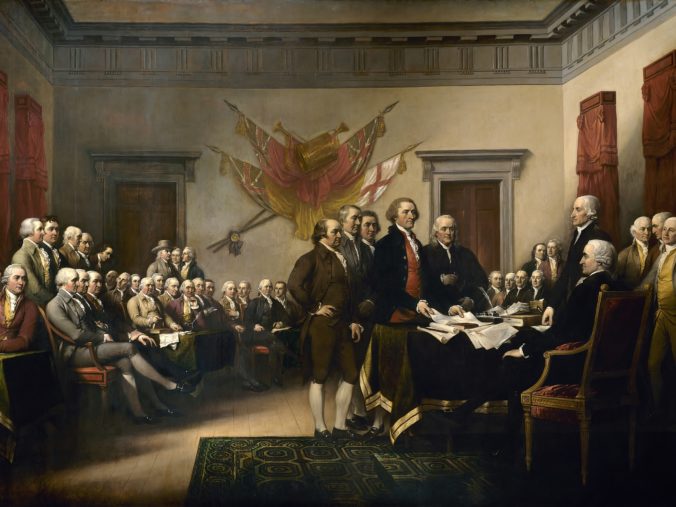
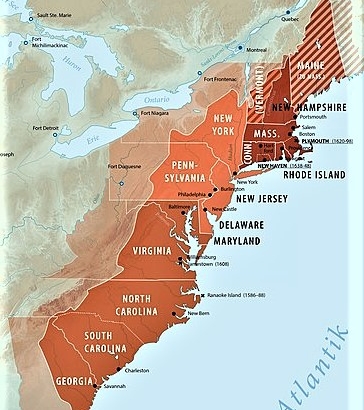 https://en.wikipedia.org/wiki/Thirteen_Colonies#/media/File:Thirteencolonies_politics_cropped.jpg
https://en.wikipedia.org/wiki/Thirteen_Colonies#/media/File:Thirteencolonies_politics_cropped.jpg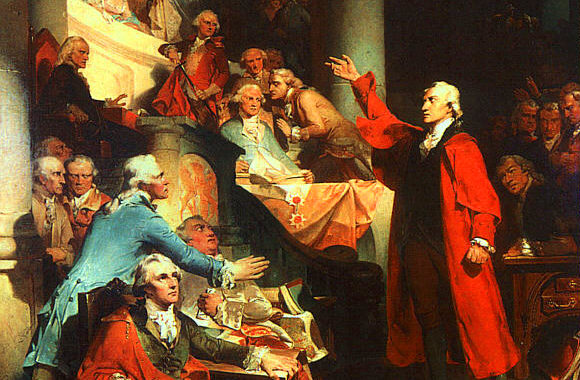 https://en.wikipedia.org/wiki/Patrick_Henry#/media/File:Patrick_Henry_Rothermel.jpg
https://en.wikipedia.org/wiki/Patrick_Henry#/media/File:Patrick_Henry_Rothermel.jpg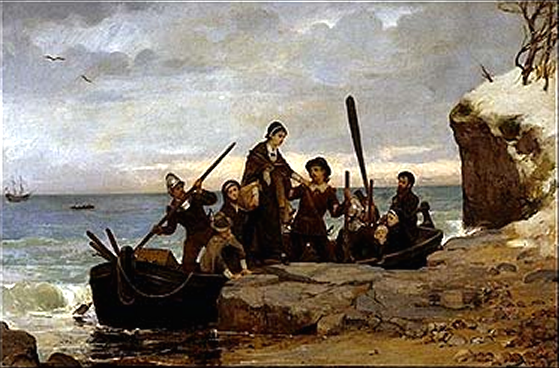 https://en.wikipedia.org/wiki/Plymouth_Colony#/media/File:Landing-Bacon.PNG
https://en.wikipedia.org/wiki/Plymouth_Colony#/media/File:Landing-Bacon.PNG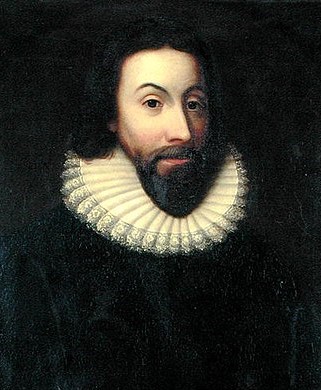 https://en.wikipedia.org/wiki/A_Model_of_Christian_Charity#/media/File:John_Winthrop.jpg
https://en.wikipedia.org/wiki/A_Model_of_Christian_Charity#/media/File:John_Winthrop.jpg Tony Williams is a Senior Fellow at the Bill of Rights Institute and is the author of six books including Washington and Hamilton: The Alliance that Forged America, with Stephen Knott. Williams is currently writing a book on the Declaration of Independence.
Tony Williams is a Senior Fellow at the Bill of Rights Institute and is the author of six books including Washington and Hamilton: The Alliance that Forged America, with Stephen Knott. Williams is currently writing a book on the Declaration of Independence.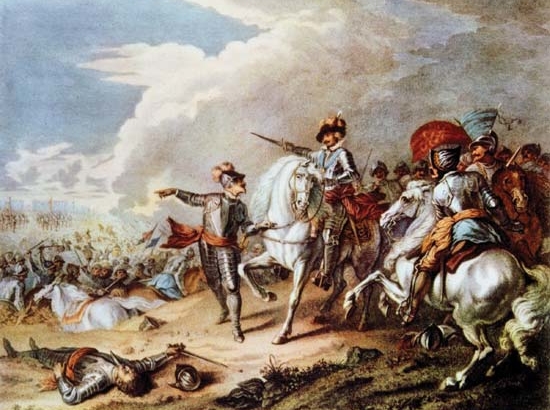 https://en.wikipedia.org/wiki/English_Civil_War#/media/File:Battle_of_Naseby.jpg
https://en.wikipedia.org/wiki/English_Civil_War#/media/File:Battle_of_Naseby.jpg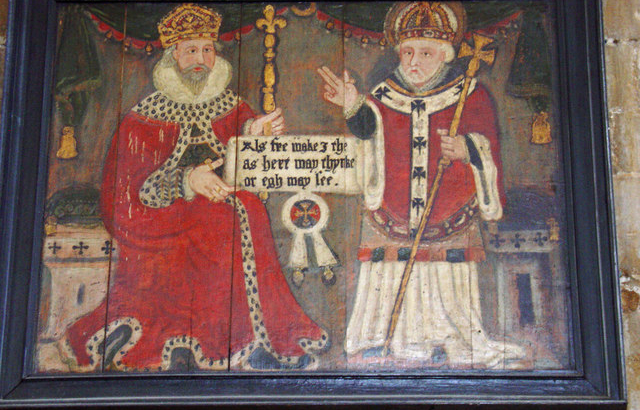 https://en.wikipedia.org/wiki/%C3%86thelstan#/media/File:Painting,_Beverley_Minster_-_geograph.org.uk_-_1317269.jpg
https://en.wikipedia.org/wiki/%C3%86thelstan#/media/File:Painting,_Beverley_Minster_-_geograph.org.uk_-_1317269.jpg
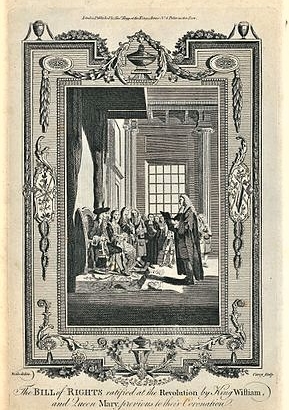 https://en.wikipedia.org/wiki/Bill_of_Rights_1689#/media/File:Samuel_Wale,_The_Bill_of_Rights_Ratified_at_the_Revolution_by_King_William,_and_Queen_Mary,_Previous_to_their_Coronation_(1783).jpg
https://en.wikipedia.org/wiki/Bill_of_Rights_1689#/media/File:Samuel_Wale,_The_Bill_of_Rights_Ratified_at_the_Revolution_by_King_William,_and_Queen_Mary,_Previous_to_their_Coronation_(1783).jpg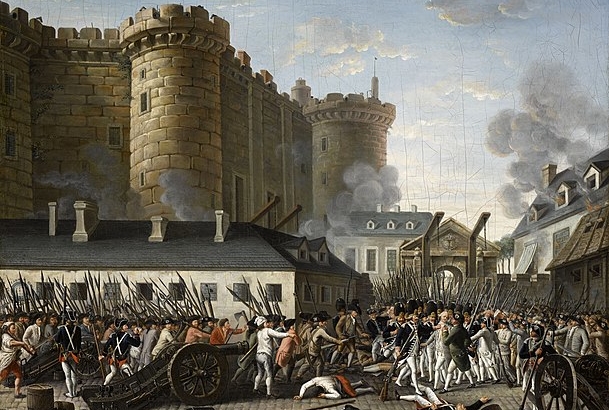 https://en.wikipedia.org/wiki/French_Revolution#/media/File:Anonymous_-_Prise_de_la_Bastille.jpg
https://en.wikipedia.org/wiki/French_Revolution#/media/File:Anonymous_-_Prise_de_la_Bastille.jpg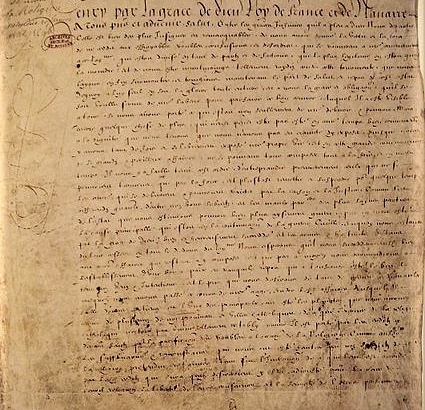
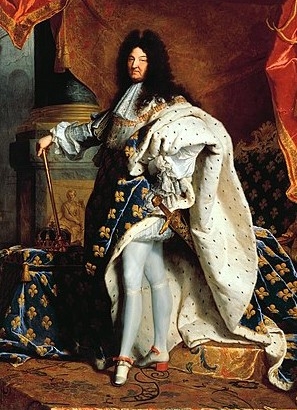
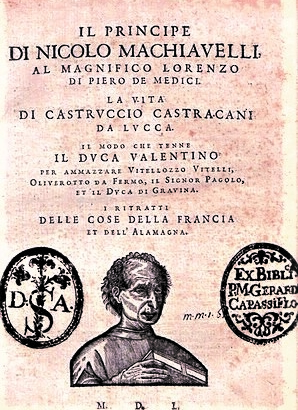 https://en.wikipedia.org/wiki/The_Prince#/media/File:Machiavelli_Principe_Cover_Page.jpg
https://en.wikipedia.org/wiki/The_Prince#/media/File:Machiavelli_Principe_Cover_Page.jpg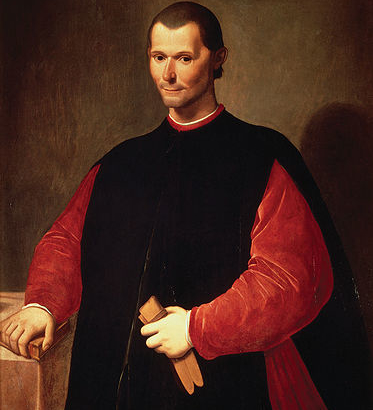 https://en.wikipedia.org/wiki/Niccol%C3%B2_Machiavelli#/media/File:Portrait_of_Niccol%C3%B2_Machiavelli_by_Santi_di_Tito.jpg
https://en.wikipedia.org/wiki/Niccol%C3%B2_Machiavelli#/media/File:Portrait_of_Niccol%C3%B2_Machiavelli_by_Santi_di_Tito.jpg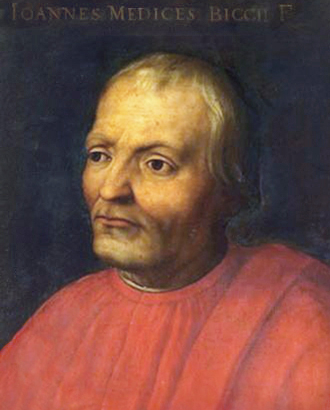 https://en.wikipedia.org/wiki/Giovanni_di_Bicci_de%27_Medici#/media/File:Giovanni_di_Bicci_de'_Medici.jpg
https://en.wikipedia.org/wiki/Giovanni_di_Bicci_de%27_Medici#/media/File:Giovanni_di_Bicci_de'_Medici.jpg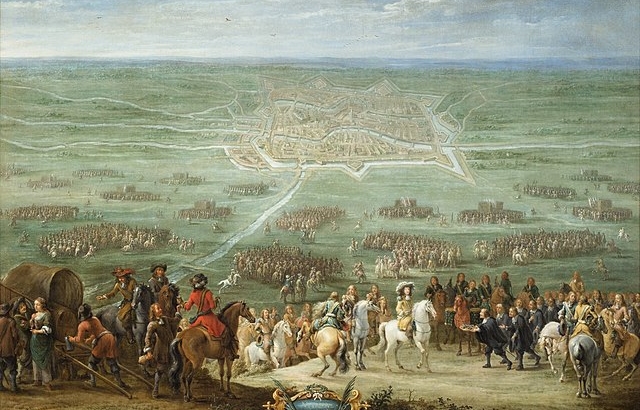 https://en.wikipedia.org/wiki/Utrecht#/media/File:Lambert_de_Hondt_(II)_-_The_Surrender_of_Utrecht.jpg
https://en.wikipedia.org/wiki/Utrecht#/media/File:Lambert_de_Hondt_(II)_-_The_Surrender_of_Utrecht.jpg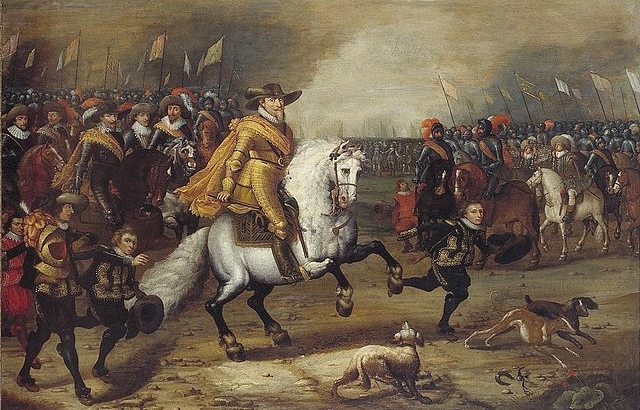 https://en.wikipedia.org/wiki/Eighty_Years%27_War#/media/File:Maurits_(1567-1625),_prins_van_Oranje,_in_de_slag_bij_Nieuwpoort_(1600).jpg
https://en.wikipedia.org/wiki/Eighty_Years%27_War#/media/File:Maurits_(1567-1625),_prins_van_Oranje,_in_de_slag_bij_Nieuwpoort_(1600).jpg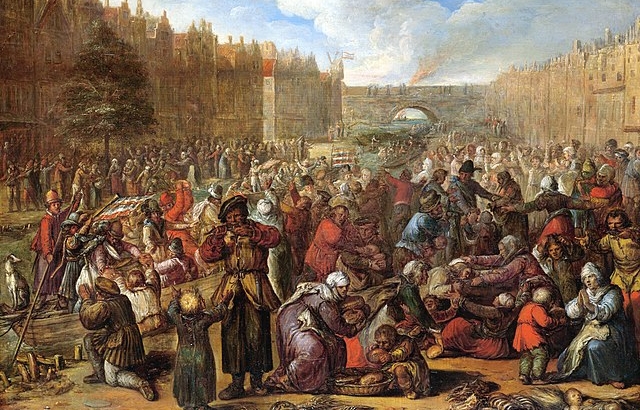 https://en.wikipedia.org/wiki/Eighty_Years%27_War#/media/File:Veen01.jpg
https://en.wikipedia.org/wiki/Eighty_Years%27_War#/media/File:Veen01.jpg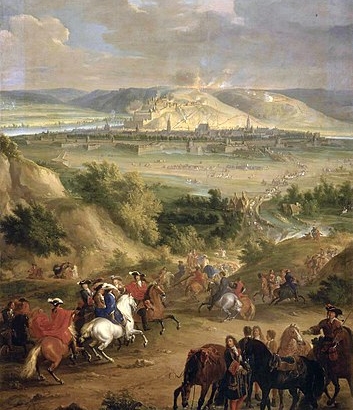 https://en.wikipedia.org/wiki/Nine_Years%27_War#/media/File:Siege_of_Namur_(1692).JPG
https://en.wikipedia.org/wiki/Nine_Years%27_War#/media/File:Siege_of_Namur_(1692).JPG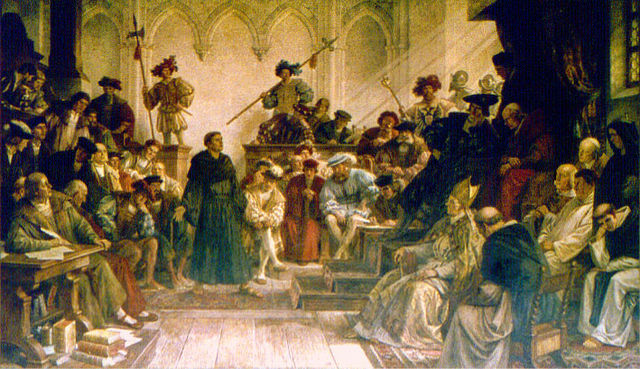 https://en.wikipedia.org/wiki/Imperial_Diet_(Holy_Roman_Empire)#/media/File:Luther_(Wislicenus).jpg
https://en.wikipedia.org/wiki/Imperial_Diet_(Holy_Roman_Empire)#/media/File:Luther_(Wislicenus).jpg https://en.wikipedia.org/wiki/Imperial_Crown_of_the_Holy_Roman_Empire#/media/File:Holy_Roman_Empire_Crown_(Imperial_Treasury)2.jpg
https://en.wikipedia.org/wiki/Imperial_Crown_of_the_Holy_Roman_Empire#/media/File:Holy_Roman_Empire_Crown_(Imperial_Treasury)2.jpg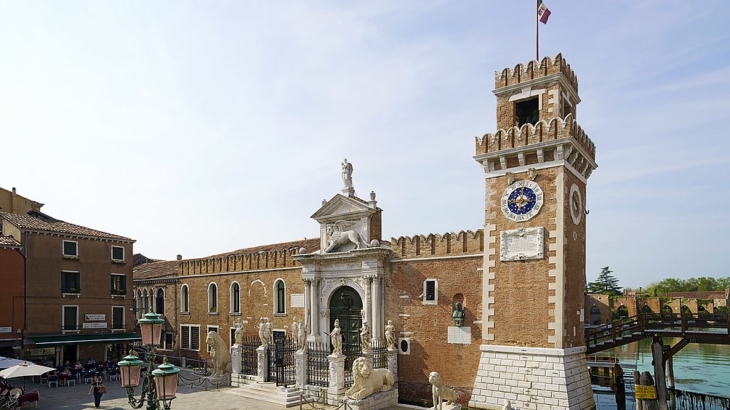 https://en.wikipedia.org/wiki/Venetian_Arsenal#/media/File:Campo_de_l'Arsenal.jpg
https://en.wikipedia.org/wiki/Venetian_Arsenal#/media/File:Campo_de_l'Arsenal.jpg https://en.wikipedia.org/wiki/History_of_the_Republic_of_Venice#/media/File:Venitian_ford_at_Navlion.jpg
https://en.wikipedia.org/wiki/History_of_the_Republic_of_Venice#/media/File:Venitian_ford_at_Navlion.jpg Joerg W. Knipprath is an expert on constitutional law, and member of the Southwestern Law School faculty. Professor Knipprath has been interviewed by print and broadcast media on a number of related topics ranging from recent U.S. Supreme Court decisions to presidential succession. He has written opinion pieces and articles on business and securities law as well as constitutional issues, and has focused his more recent research on the effect of judicial review on the evolution of constitutional law. He has also spoken on business law and contemporary constitutional issues before professional and community forums, and serves as a Constituting America Fellow.
Joerg W. Knipprath is an expert on constitutional law, and member of the Southwestern Law School faculty. Professor Knipprath has been interviewed by print and broadcast media on a number of related topics ranging from recent U.S. Supreme Court decisions to presidential succession. He has written opinion pieces and articles on business and securities law as well as constitutional issues, and has focused his more recent research on the effect of judicial review on the evolution of constitutional law. He has also spoken on business law and contemporary constitutional issues before professional and community forums, and serves as a Constituting America Fellow.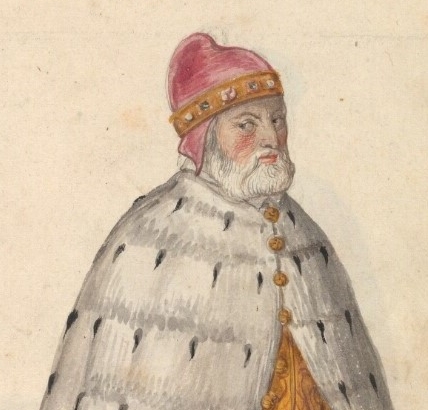 https://en.wikipedia.org/wiki/Republic_of_Venice#/media/File:Archive-ugent-be-79D46426-CC9D-11E3-B56B-4FBAD43445F2_DS-240_(cropped).jpg
https://en.wikipedia.org/wiki/Republic_of_Venice#/media/File:Archive-ugent-be-79D46426-CC9D-11E3-B56B-4FBAD43445F2_DS-240_(cropped).jpg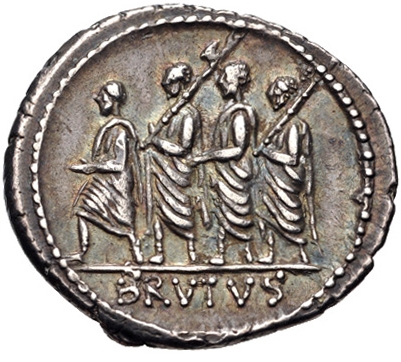 https://en.wikipedia.org/wiki/Roman_Republic#/media/File:Q._Servilius_Caepio_(M._Junius)_Brutus,_denarius,_54_BC,_RRC_433-1_reverse.jpg
https://en.wikipedia.org/wiki/Roman_Republic#/media/File:Q._Servilius_Caepio_(M._Junius)_Brutus,_denarius,_54_BC,_RRC_433-1_reverse.jpg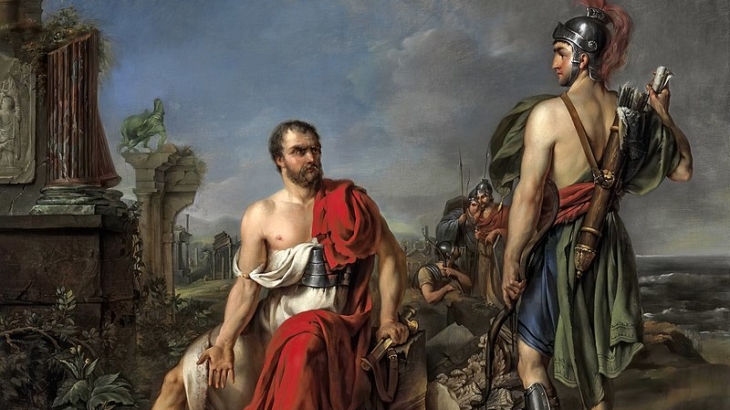
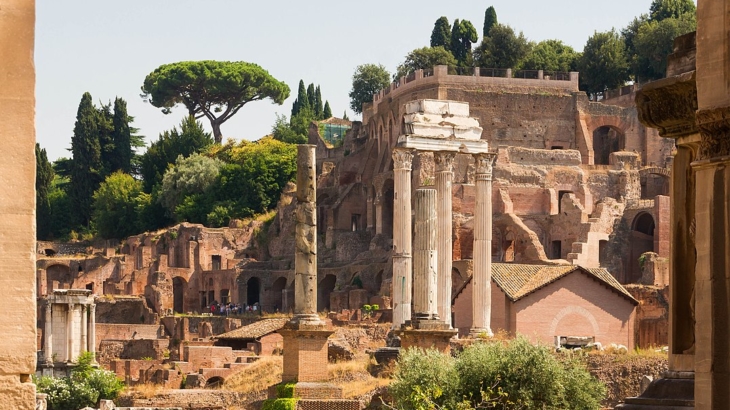 https://en.wikipedia.org/wiki/Roman_Republic#/media/File:Forum_Romanum_through_Arch_of_Septimius_Severus_Forum_Romanum_Rome.jpg
https://en.wikipedia.org/wiki/Roman_Republic#/media/File:Forum_Romanum_through_Arch_of_Septimius_Severus_Forum_Romanum_Rome.jpg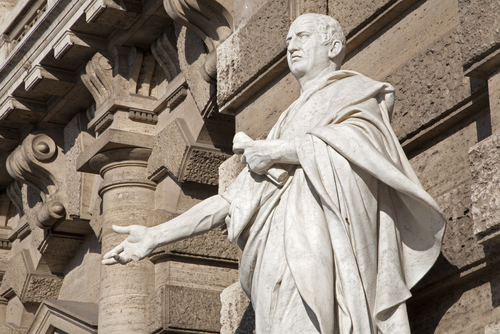
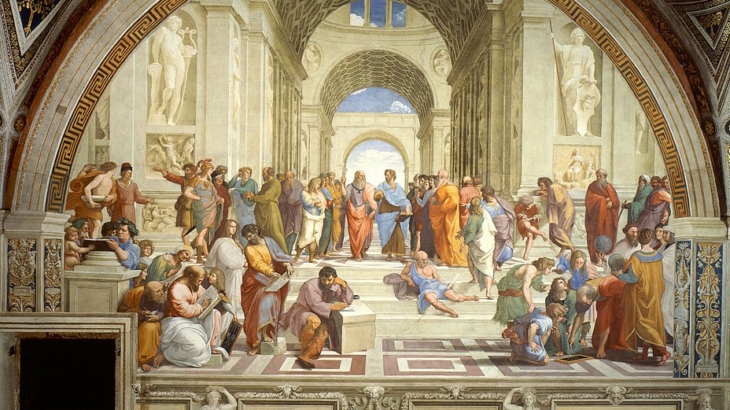
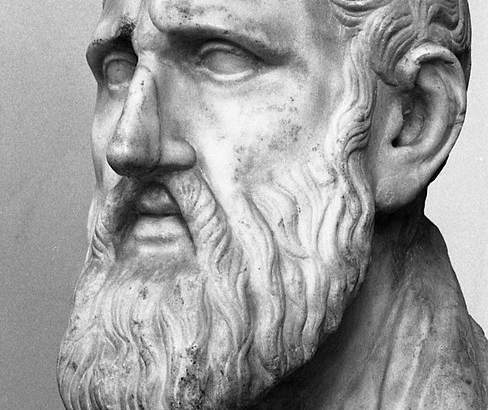 https://en.wikipedia.org/wiki/Stoicism#/media/File:Paolo_Monti_-_Servizio_fotografico_(Napoli,_1969)_-_BEIC_6353768.jpg
https://en.wikipedia.org/wiki/Stoicism#/media/File:Paolo_Monti_-_Servizio_fotografico_(Napoli,_1969)_-_BEIC_6353768.jpg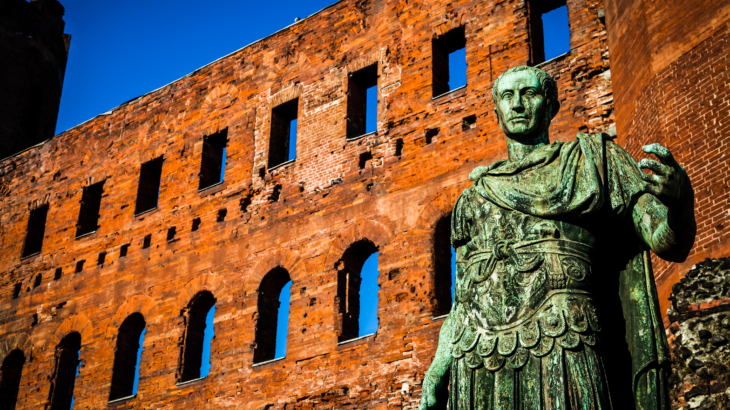
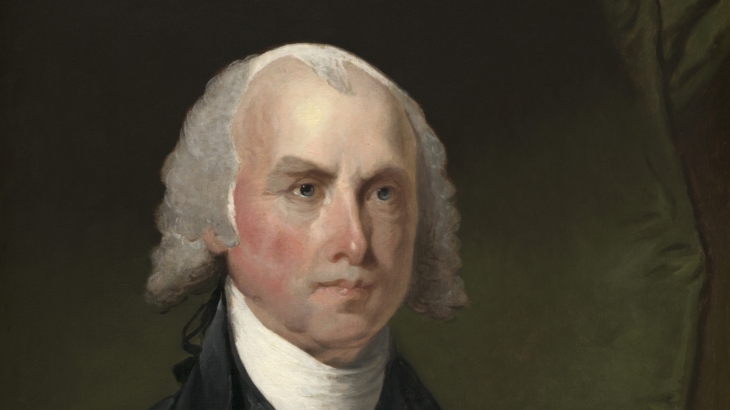
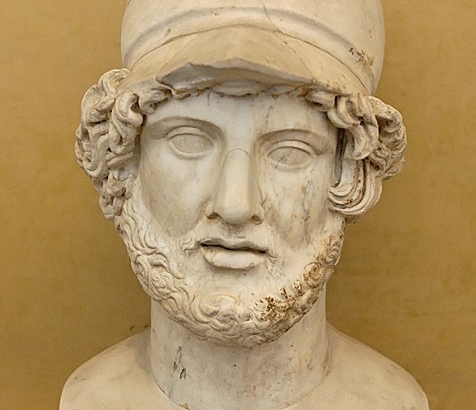
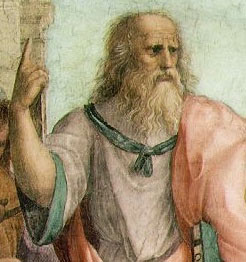
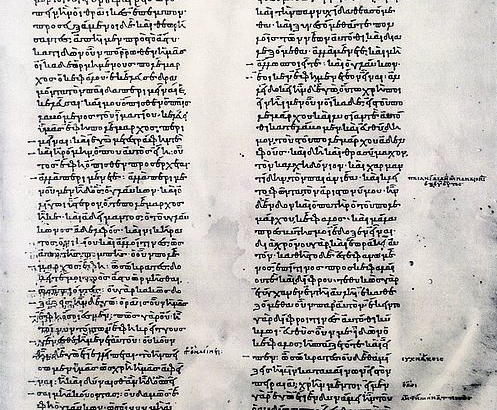

 William B. Allen is Emeritus Dean and Professor of Political Science at Michigan State University.
William B. Allen is Emeritus Dean and Professor of Political Science at Michigan State University.  Podcast by Maureen Quinn.
Podcast by Maureen Quinn. Michael P. Farris is president and CEO of Alliance Defending Freedom. As the second CEO of ADF, he brings to the role a diverse background as an effective litigator, educator, public advocate, and communicator, and is widely recognized for his successful work on both the national and international stage.
Michael P. Farris is president and CEO of Alliance Defending Freedom. As the second CEO of ADF, he brings to the role a diverse background as an effective litigator, educator, public advocate, and communicator, and is widely recognized for his successful work on both the national and international stage.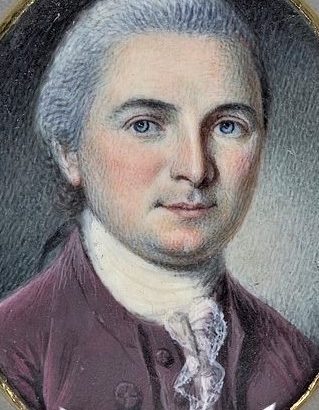
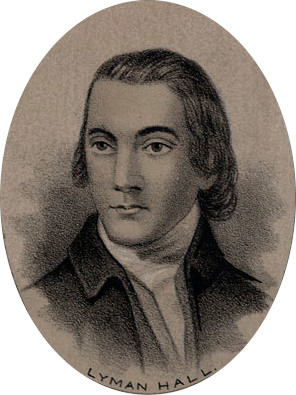
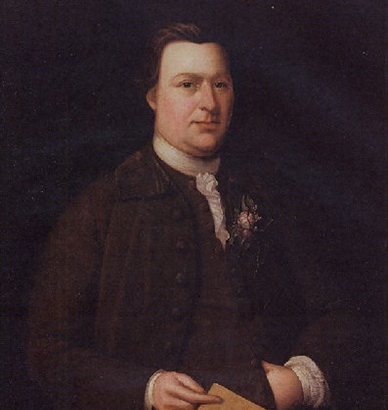

 J. Edward Lee, Ph.D., is Professor of History at Winthrop University. Lee is a former mayor of the City of York, South Carolina.
J. Edward Lee, Ph.D., is Professor of History at Winthrop University. Lee is a former mayor of the City of York, South Carolina.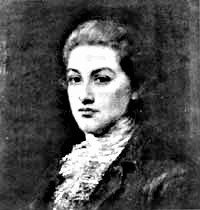
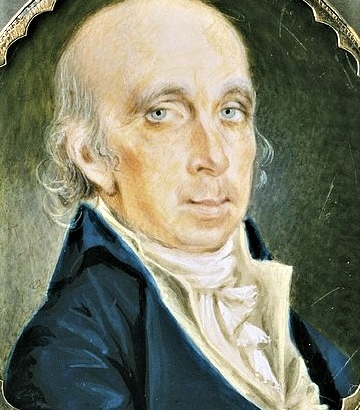
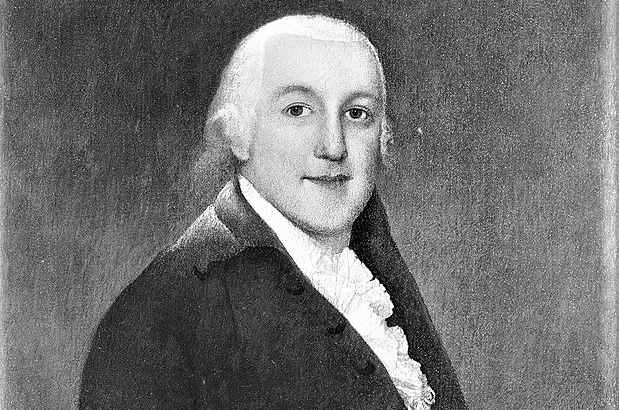
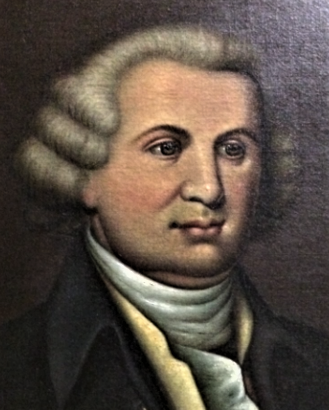
 Barb Zakszewski is a wife, mother and grandmother, lifelong conservative, regular civic volunteer and writer.
Barb Zakszewski is a wife, mother and grandmother, lifelong conservative, regular civic volunteer and writer.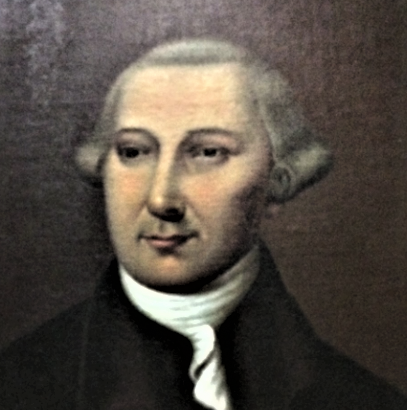
 Jeff Broadwater is professor emeritus of history at Barton College in Wilson, North Carolina, where he taught courses on the American Revolution and on the history of the American South. His publications include Jefferson, Madison, and the Making of the Constitution (2019); James Madison, A Son of Virginia and a Founder of of the Nation (2012); and George Mason, Forgotten Founder (2006). He also co-edited, with Troy Kickler, North Carolina’s Revolutionary Founders (2019).
Jeff Broadwater is professor emeritus of history at Barton College in Wilson, North Carolina, where he taught courses on the American Revolution and on the history of the American South. His publications include Jefferson, Madison, and the Making of the Constitution (2019); James Madison, A Son of Virginia and a Founder of of the Nation (2012); and George Mason, Forgotten Founder (2006). He also co-edited, with Troy Kickler, North Carolina’s Revolutionary Founders (2019).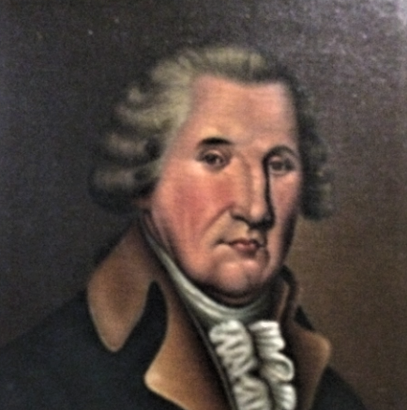
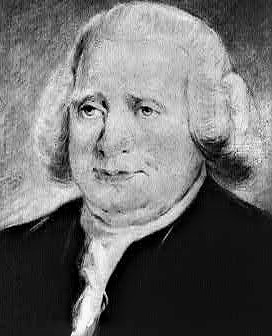
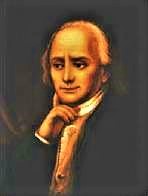
 Andrew Langer is President of the Institute for Liberty.
Andrew Langer is President of the Institute for Liberty.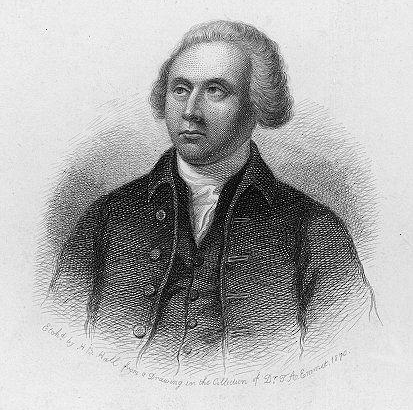
 Val Crofts serves as Chief Education and Programs Officer at the American Village in Montevallo, Alabama. Val previously taught high school U.S. History, U.S. Military History and AP U.S. Government for 19 years in Wisconsin, and was recipient of the DAR Outstanding U.S. History Teacher of the Year for the state of Wisconsin in 2019-20. Val also taught for the Wisconsin Virtual School as a social studies teacher for 9 years. He is also a proud member of the United States Semiquincentennial Commission (America 250), which is currently planning events to celebrate the 250th birthday of the Declaration of Independence.
Val Crofts serves as Chief Education and Programs Officer at the American Village in Montevallo, Alabama. Val previously taught high school U.S. History, U.S. Military History and AP U.S. Government for 19 years in Wisconsin, and was recipient of the DAR Outstanding U.S. History Teacher of the Year for the state of Wisconsin in 2019-20. Val also taught for the Wisconsin Virtual School as a social studies teacher for 9 years. He is also a proud member of the United States Semiquincentennial Commission (America 250), which is currently planning events to celebrate the 250th birthday of the Declaration of Independence.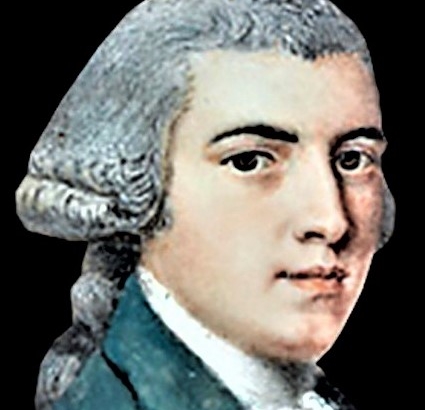
 William M.S. Rasmussen serves as Senior Museum Collections Curator & Lora M. Robins Curator of Art at the Virginia Museum of History & Culture. He is co-author of The Story of Virginia, Highlights from the Virginia Museum of History & Culture, with Jamie O. Bosket, among many other books and articles on Virginia history.
William M.S. Rasmussen serves as Senior Museum Collections Curator & Lora M. Robins Curator of Art at the Virginia Museum of History & Culture. He is co-author of The Story of Virginia, Highlights from the Virginia Museum of History & Culture, with Jamie O. Bosket, among many other books and articles on Virginia history.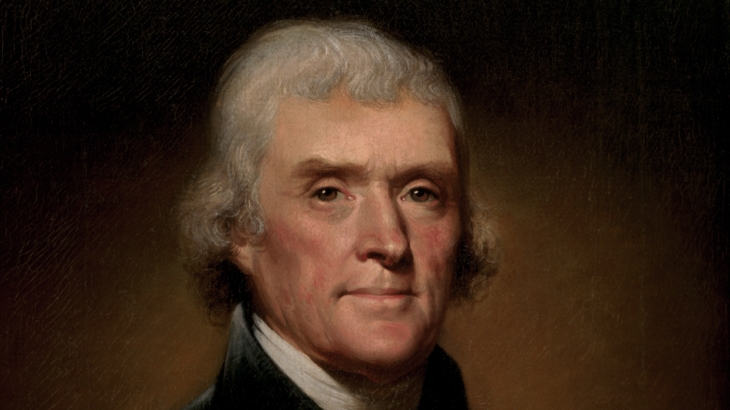

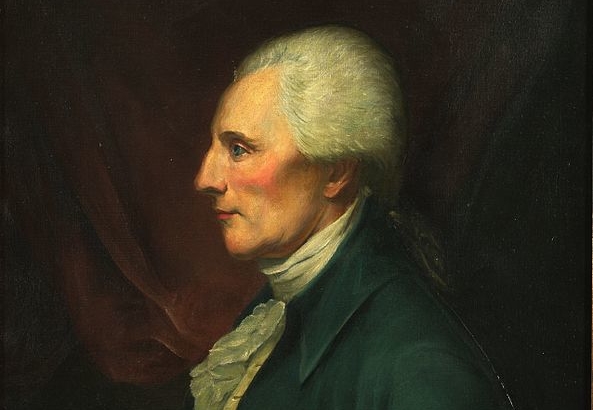
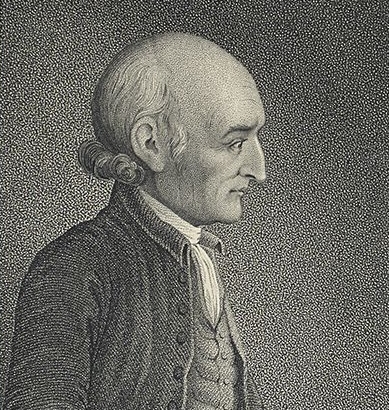
 Suzanne Munson is author of the George Wythe biography, Jefferson’s Godfather: The Man Behind the Man. She lectures frequently on the Wythe-Jefferson legacy at university affiliates, historical societies, and other venues. She is currently writing a new book, America’s First Leadership Crisis: 1776.
Suzanne Munson is author of the George Wythe biography, Jefferson’s Godfather: The Man Behind the Man. She lectures frequently on the Wythe-Jefferson legacy at university affiliates, historical societies, and other venues. She is currently writing a new book, America’s First Leadership Crisis: 1776.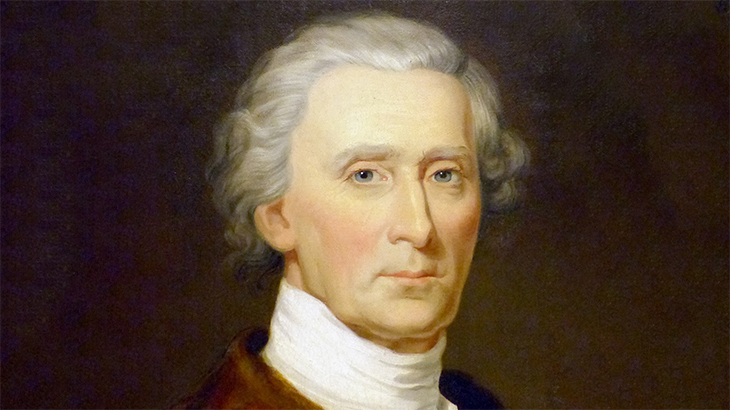
 Colleen A. Sheehan is Professor and Director of Graduate Studies with the
Colleen A. Sheehan is Professor and Director of Graduate Studies with the 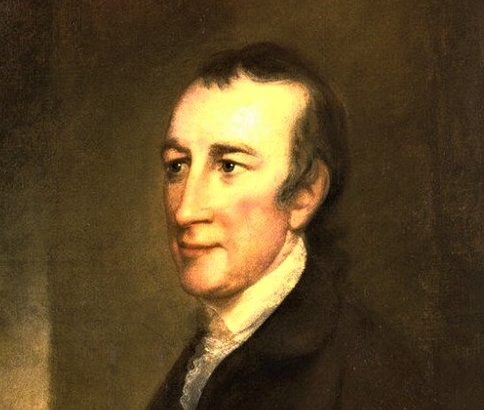

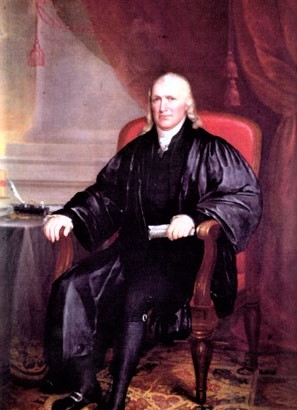
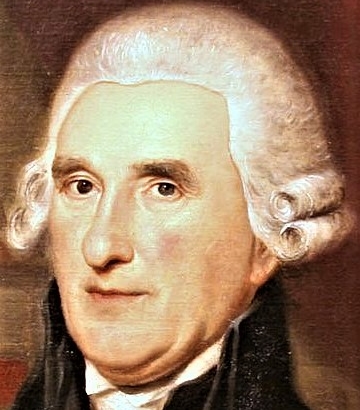
 Gordon Lloyd is the Robert and Katheryn Dockson Professor of Public Policy at
Gordon Lloyd is the Robert and Katheryn Dockson Professor of Public Policy at 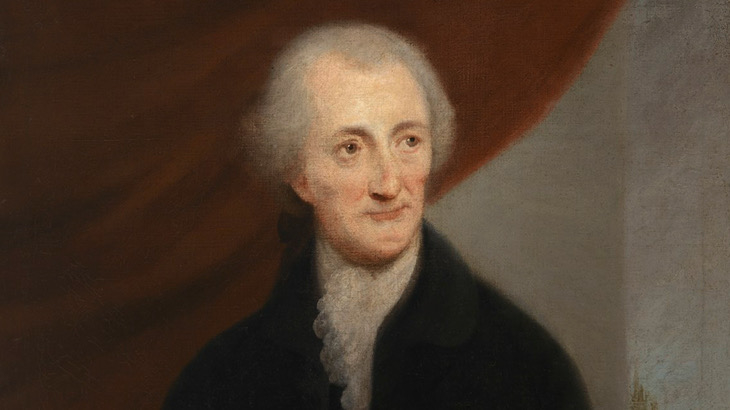
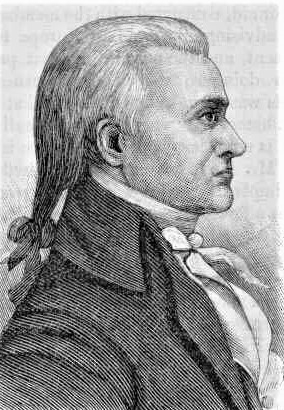
 Robert M. S. McDonald is Professor of History at the United States Military Academy at
Robert M. S. McDonald is Professor of History at the United States Military Academy at 